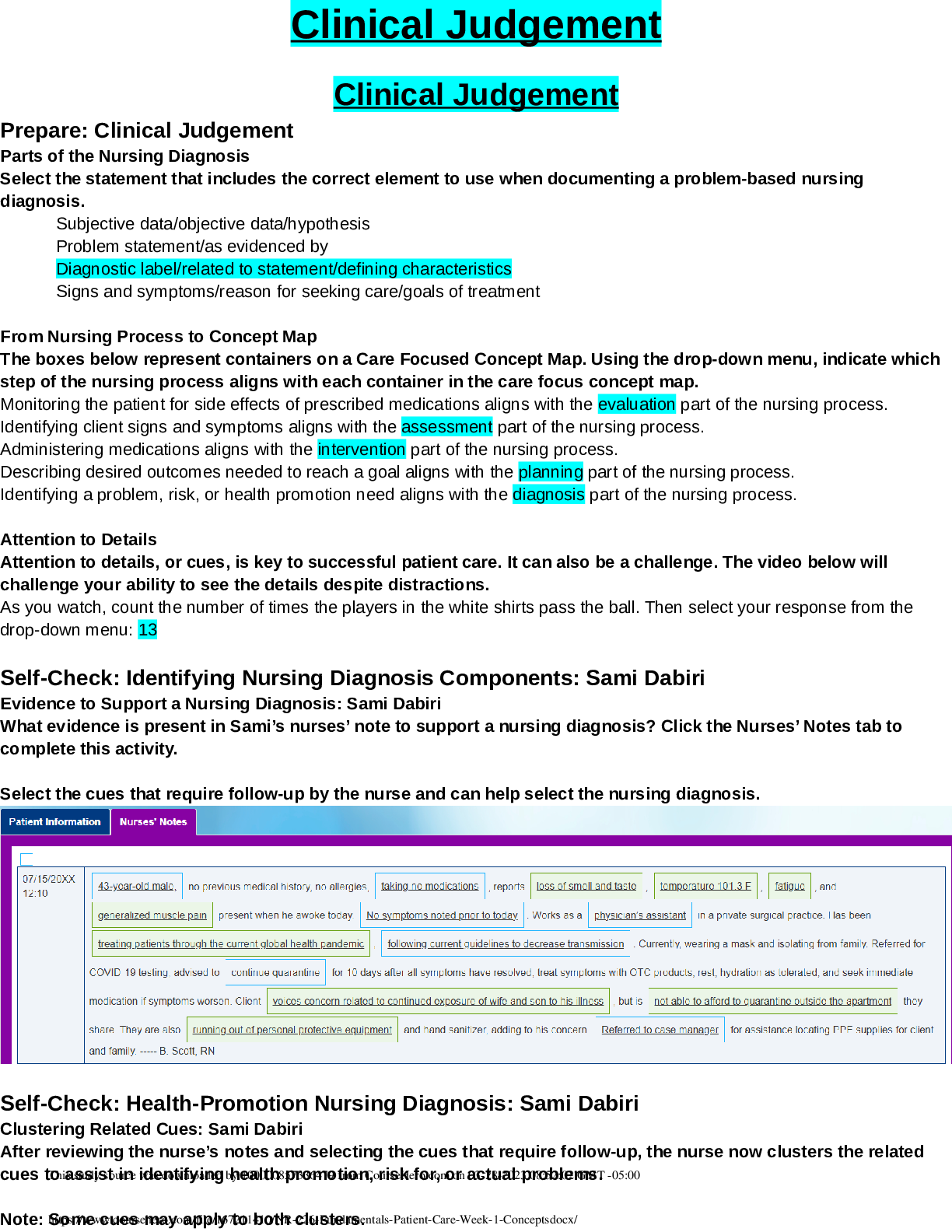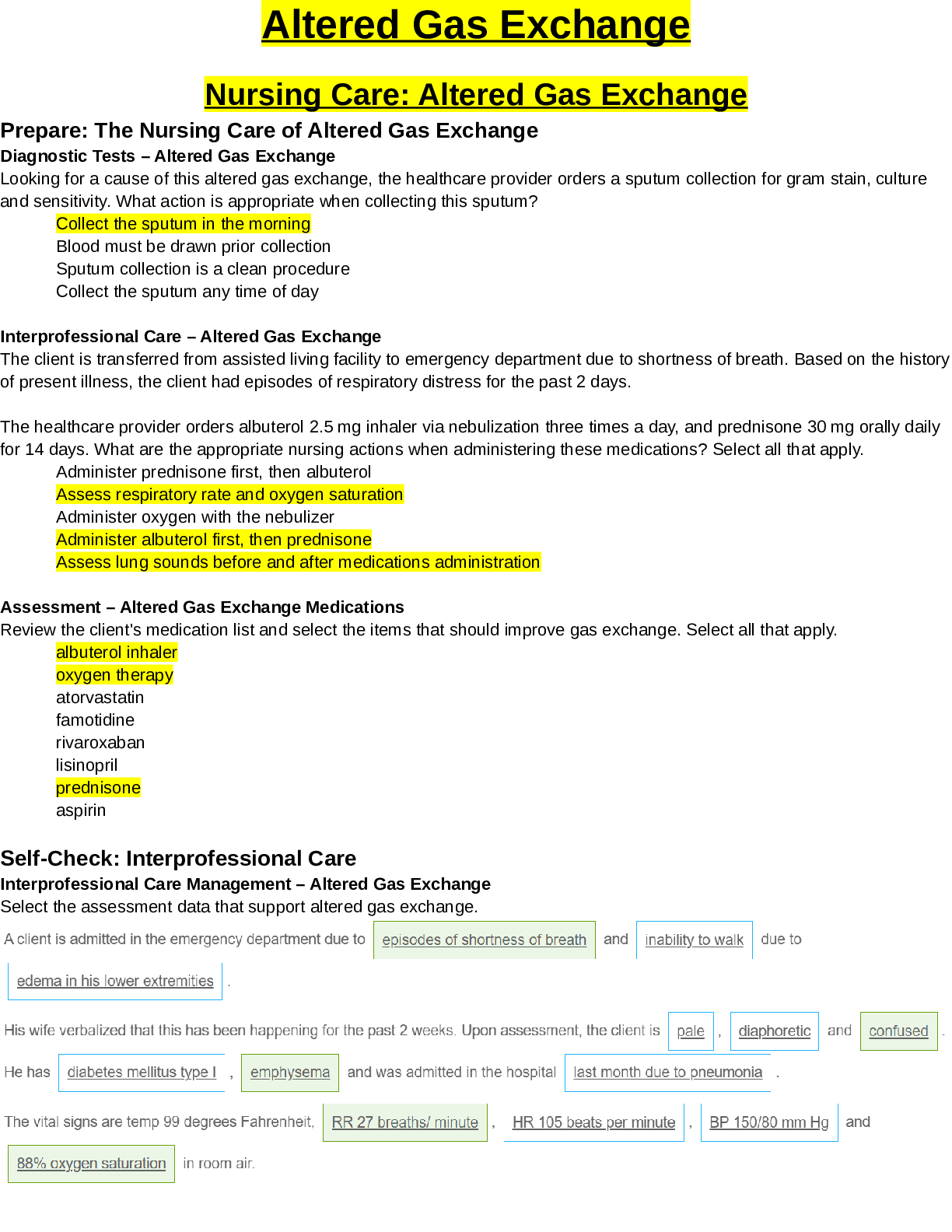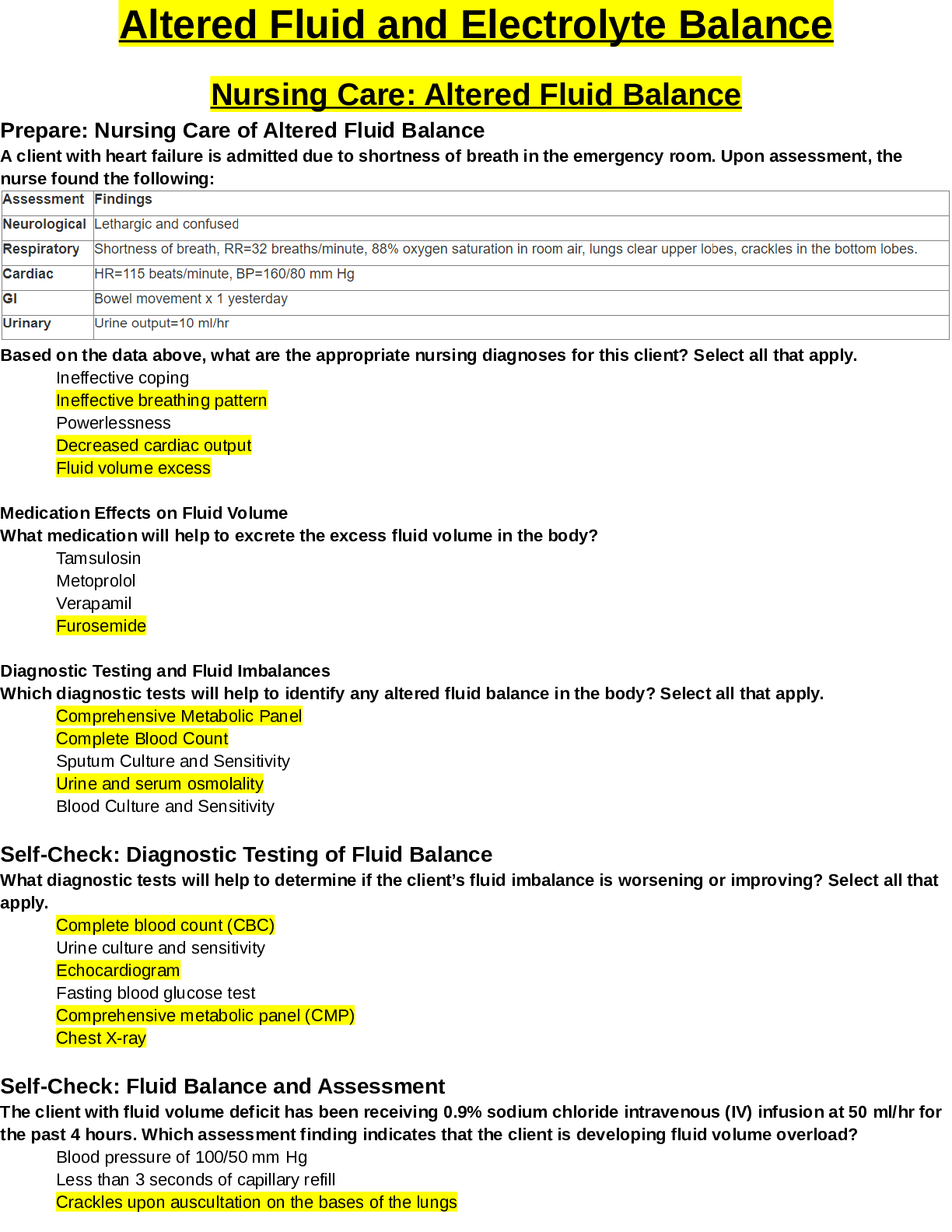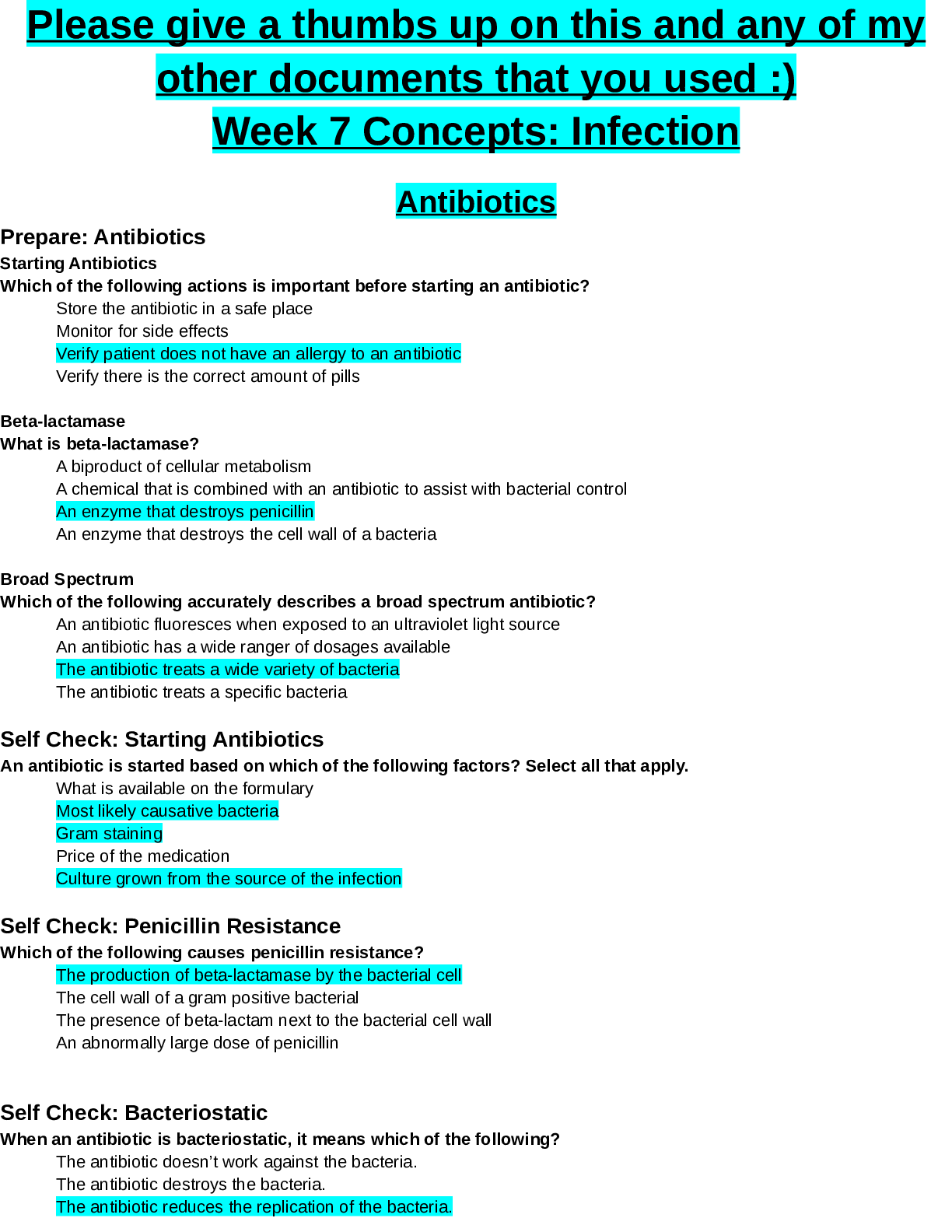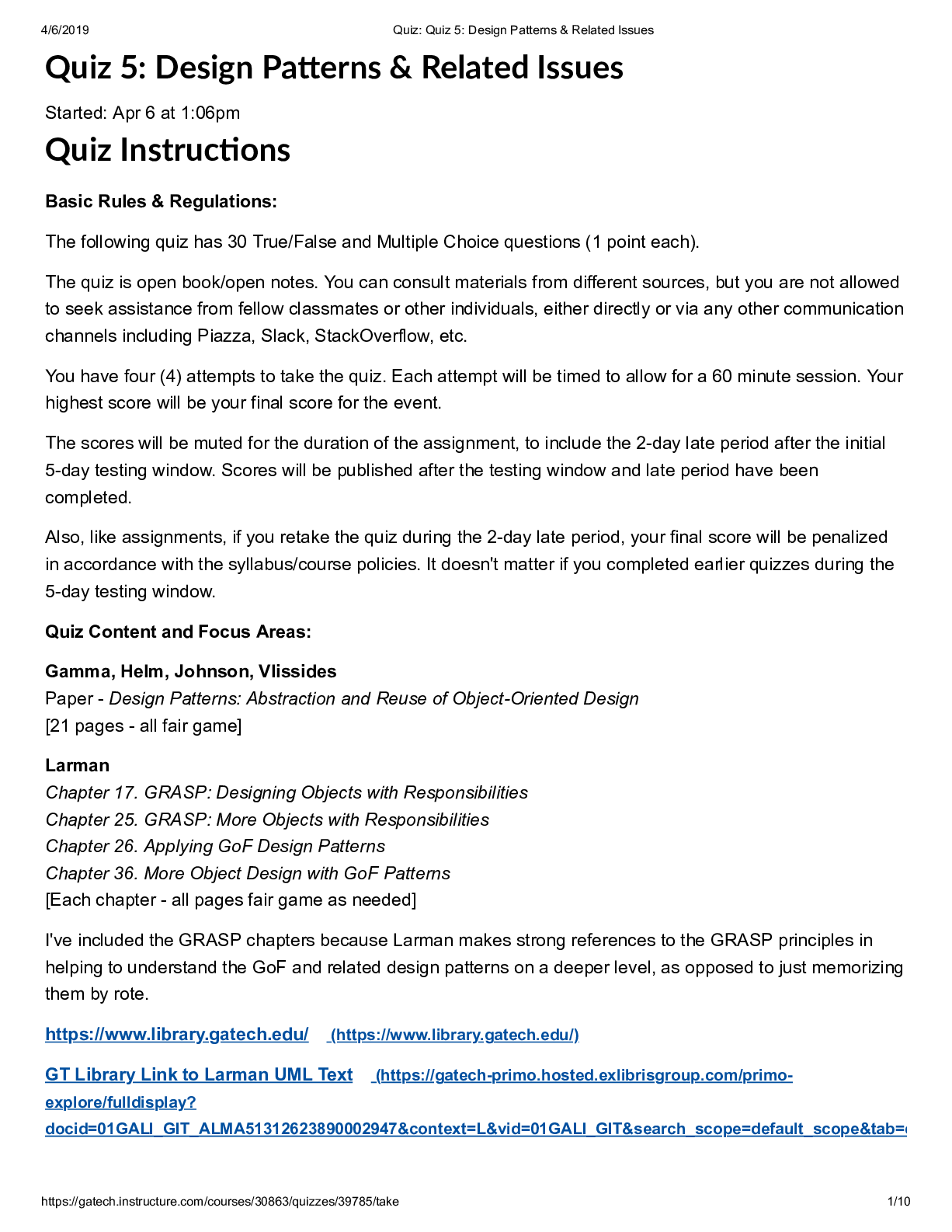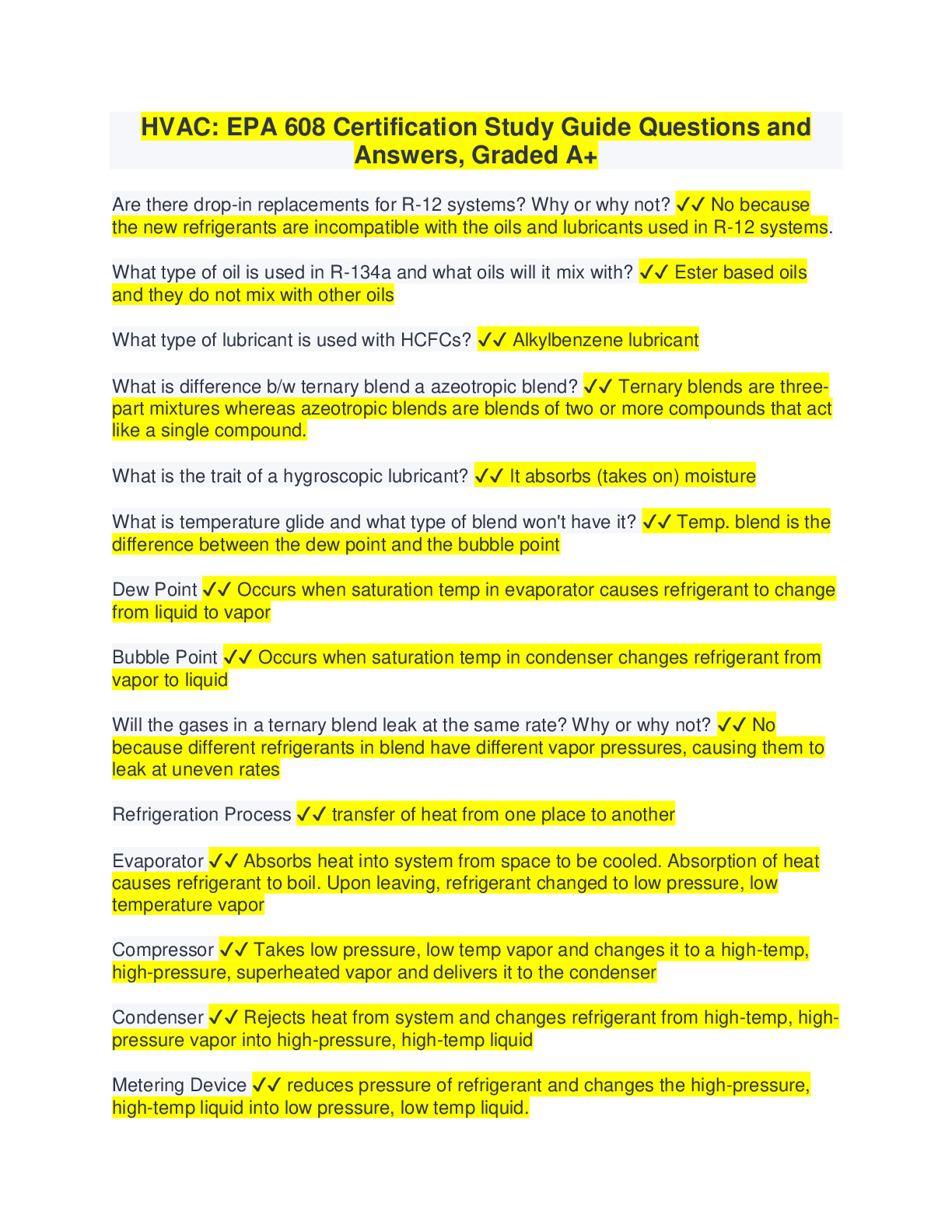*NURSING > QUESTIONS & ANSWERS > NR 226_ Fundamentals - Patient Care Week 3 Concepts_Aging and Coping The Older Adult, Chamberlain Un (All)
NR 226_ Fundamentals - Patient Care Week 3 Concepts_Aging and Coping The Older Adult, Chamberlain University College of Nursing
Document Content and Description Below
Week 3 Concepts: Aging and Coping The Older Adult Prepare: The Older Adult Physiologic Changes in the Older Adult A nurse is observing skin integrity of an older adult. Which finding will the nurs... e document as a normal finding? Faster nail growth Increased facial hair in men Oily skin Decreased elasticity Physiologic Changes An older-adult client with no acute distress reports being less able to taste and smell. What is the nurse's best response to this information? Perform testing on the vestibulocochlear nerve and a hearing test Explain to the client that diminished senses are normal Notify the healthcare provider immediately to rule out cranial nerve damage Schedule the client for an appointment at a smell and taste disorders clinic Physiologic Changes A nurse is teaching a class of older adults about the expected physiologic changes of aging. Which of the following changes should the nurse include in the discussion? Select all that apply. Decreased bladder capacity Decreased systolic blood pressure More difficulty seeing due to a greater sensitivity to glare Decreased cough reflex Dehydration of interveterbal discs Self-Check: Assessing Developmental Tasks and Caring When assessing the older adult, the nurse should review the client’s achievement of developmental tasks. Which outcome(s) indicates achievement of developmental tasks? Select all that apply. Coping with the loss of the work role Accepting himself or herself as aging Engaging in more introspective, self-focused activities Redefining relationships with children Caring for the Older Adult When caring for the older adult, which information is important to consider? Be aware that older adults have decreased interest in sex Avoid worrying them about their condition Treat the client as an individual with a unique history of their own Repeat information often because older adults are forgetful Self-Check: Ageism Ageism is characterized by which of the following? Negative attitudes towards the older adult based on physical disability Positive attitudes towards the older adult based on age Negative attitudes towards the older adult based on age Denial of negative stereotypes regarding aging Self-Check: Risk of Abuse When is the risk of abuse of an older adult family member the greatest?Older adult has decreased functional abilities Caregiver is close in age to the older adult Older adult has more than one chronic illness Caregiver lives alone with the older adult Self-Check: Aging and Physiological Changes When assessing an older adult, the nurse knows which of the following is a normal and physiological change related to aging? Increased saliva production and small intestine motility Cold feet due to a decrease in muscle mass and a decrease in the number of neurons Urinary incontinence Taking longer for the heart rate to return to baseline after exercise Self-Check: Effective Coping The nurse provides care for an older adult whose spouse died 8 months ago. Which of the following behaviors indicates that the client is experiencing effective coping? Select all that apply. Consistently cancels salon appointments Increased consumption of alcohol Visits spouse's grave every 2 weeks Attends church on a regular basis Shows the nurse family photographs Reflect: The Older Adult Caring for Older Adults The nurse works with elderly clients in a community clinic. The client inquires about their mobility and medication recommendations. The nurse responds with "Is there anything that is causing your pain?" As far as exercise, "Continue to exercise your joints regularly to your tolerance level and we will evaluate how you feel next week.” "If you have any additional questions about your medication, please let us know." Sudden Confusion An older adult recently diagnosed with a urinary tract infection displays sudden onset of confusion. What is the client most likely experiencing? Dementia Depression Social isolation Delirium Physiological Change Which of the following are normal physiological changes associated with aging? Select all that apply. Decreased cardiac output Smooth, brown, irregularly shaped spots on the backs of hands and forearms Reduced ability to see in darkness Consideration of Aging Changes The nurse is providing client teaching for an 85-year-old client who will be going home on anticoagulant therapy. Which strategy reflects considerations of aging changes that may affect this client? Give the client pamphlets about the medications to read at home. Present all the information in one session before discharge. Show a video about anticoagulation therapy. Provide large-print handouts that reflect the verbal information presented. [Show More]
Last updated: 1 year ago
Preview 1 out of 14 pages
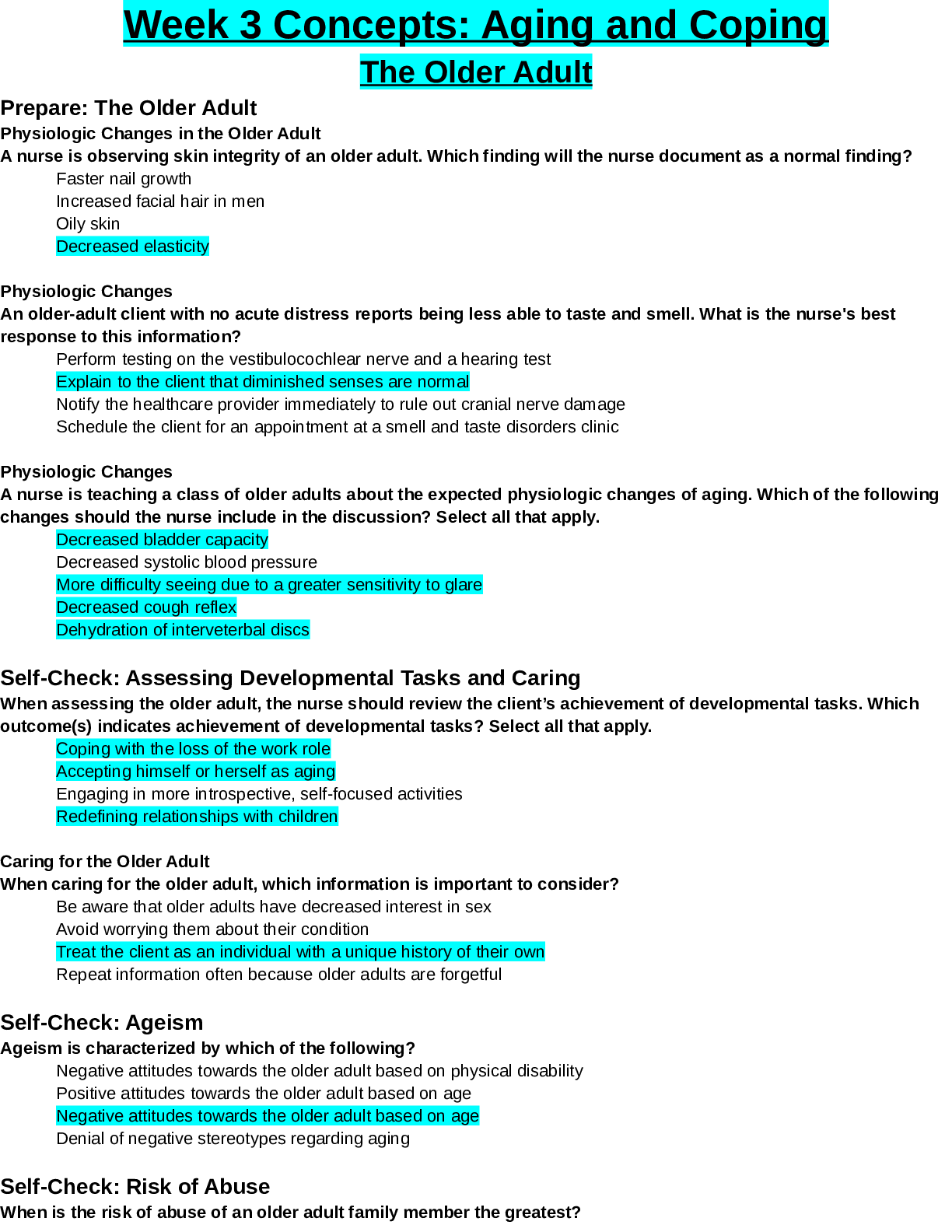
Reviews( 0 )
Document information
Connected school, study & course
About the document
Uploaded On
Mar 28, 2023
Number of pages
14
Written in
Additional information
This document has been written for:
Uploaded
Mar 28, 2023
Downloads
0
Views
92


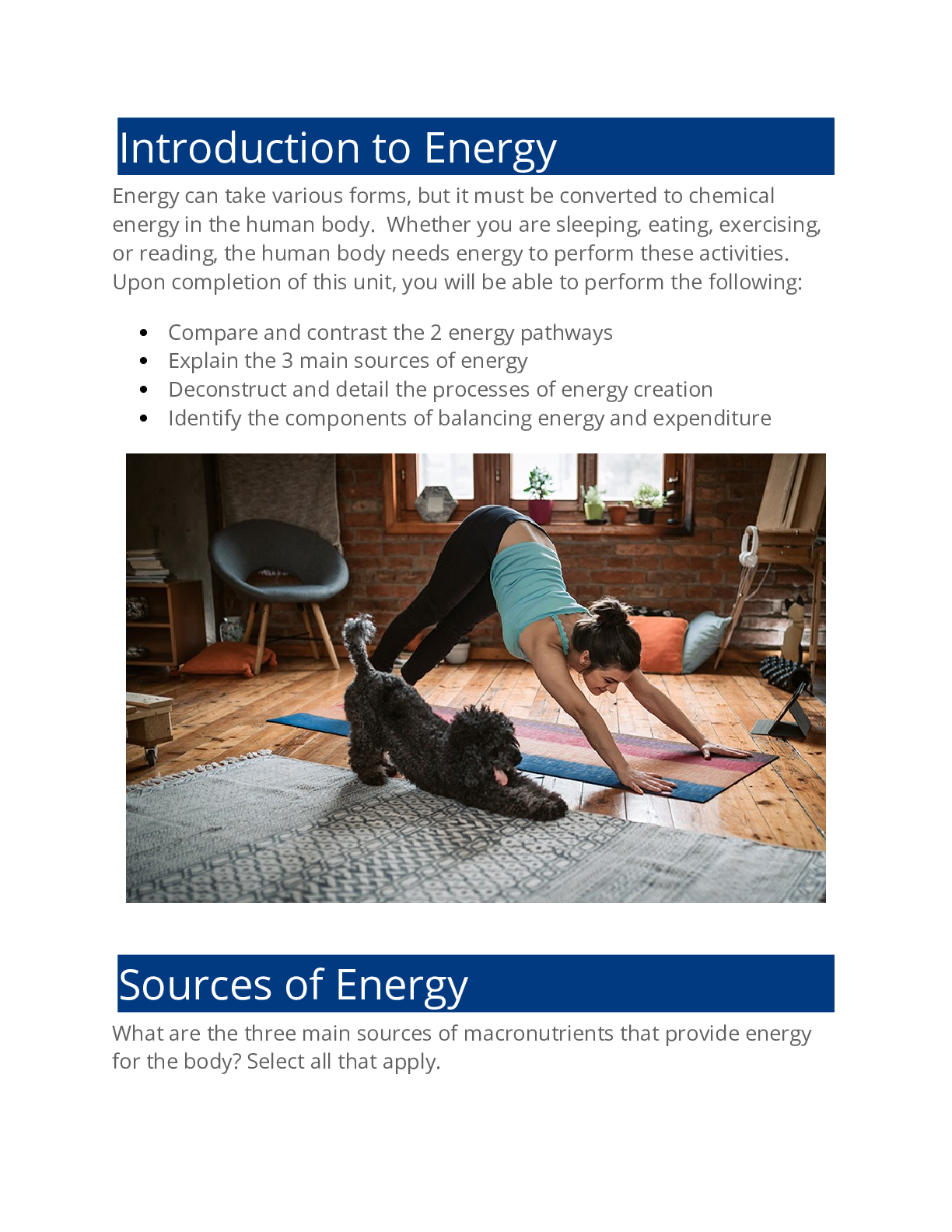
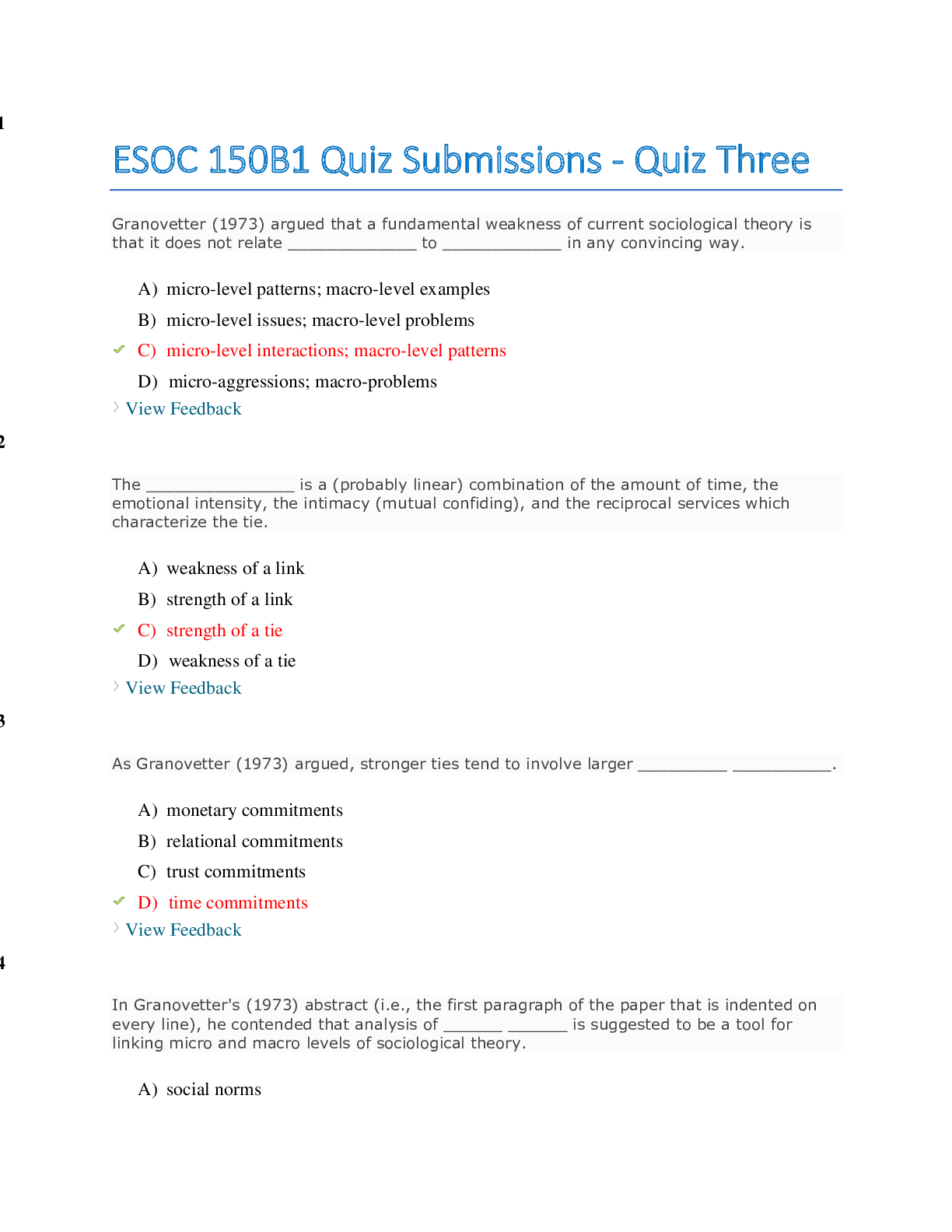
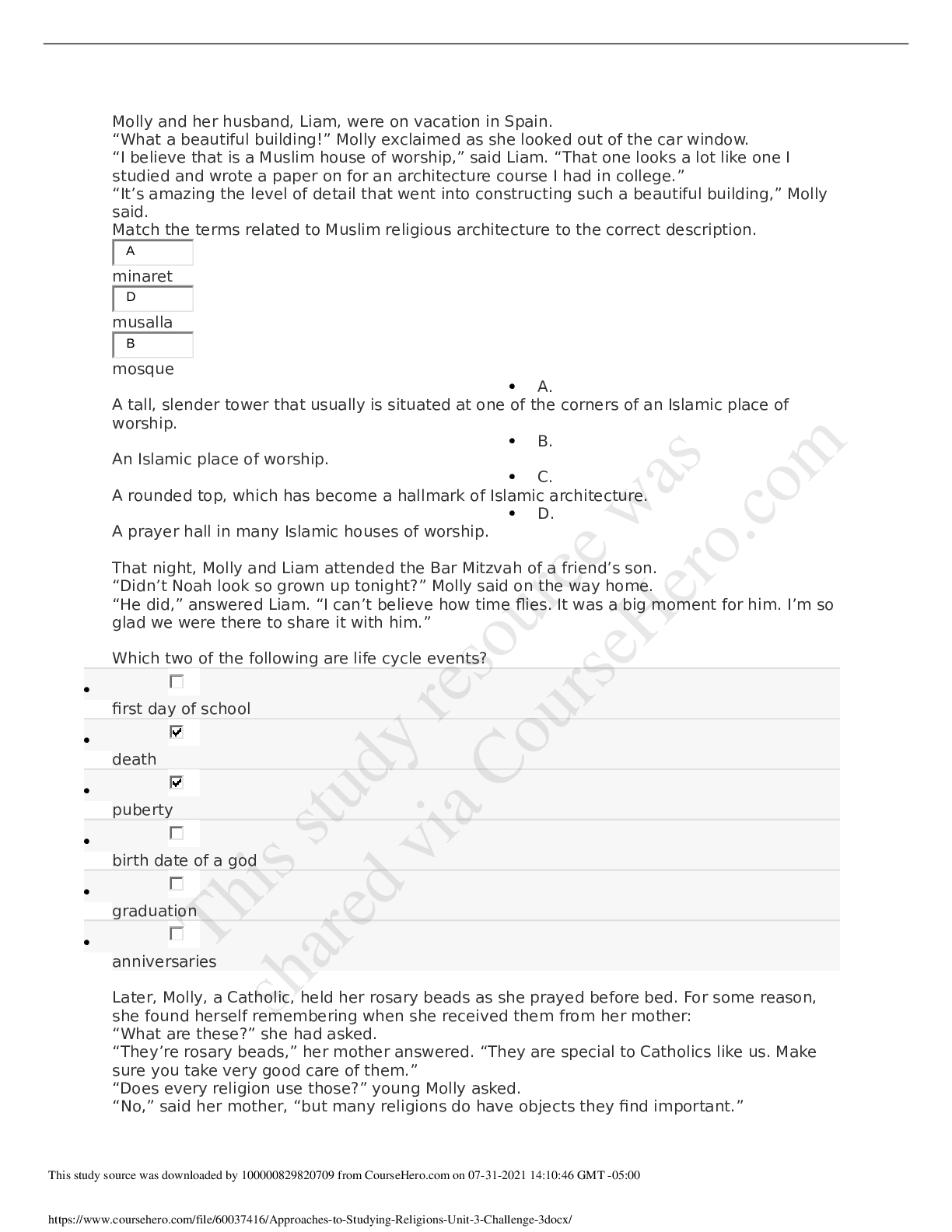
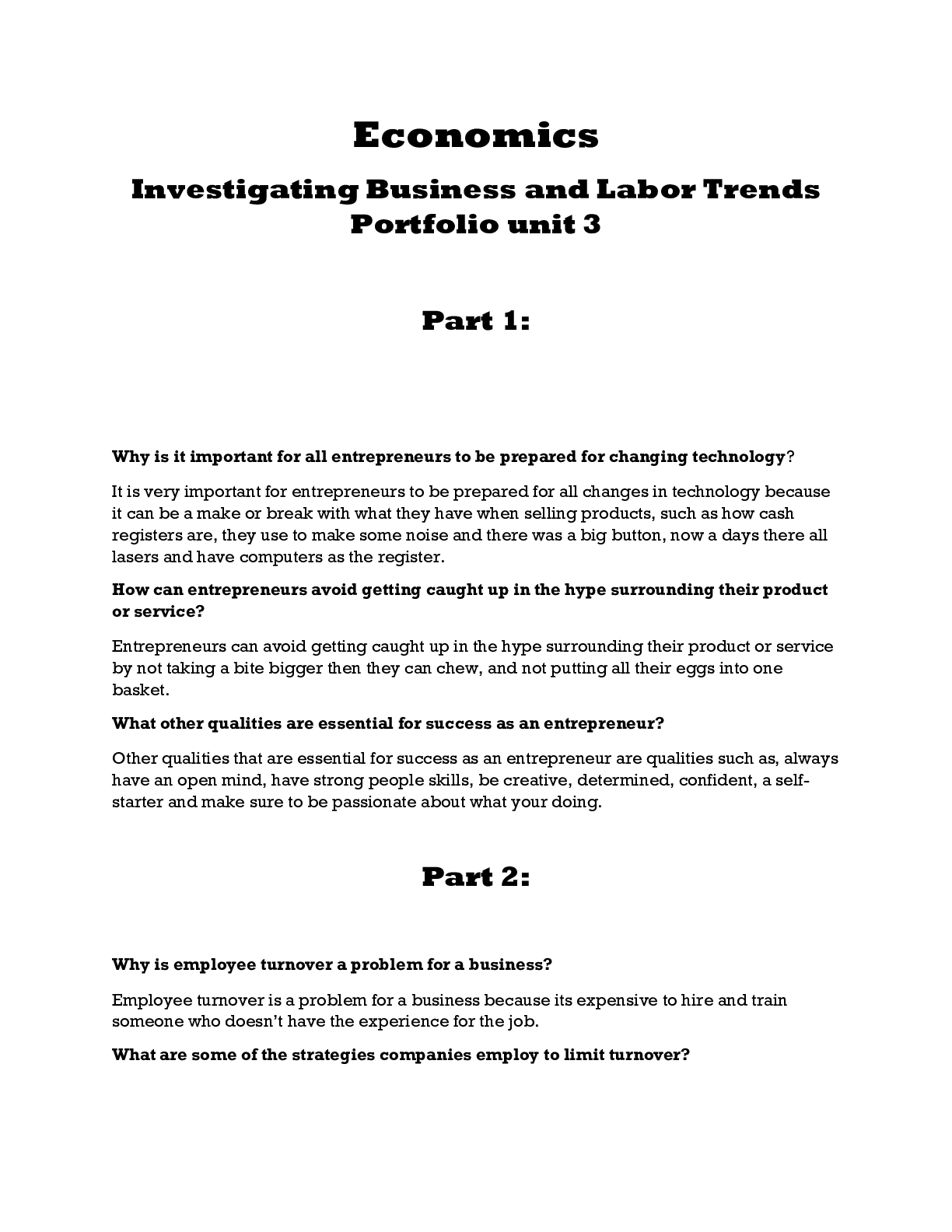
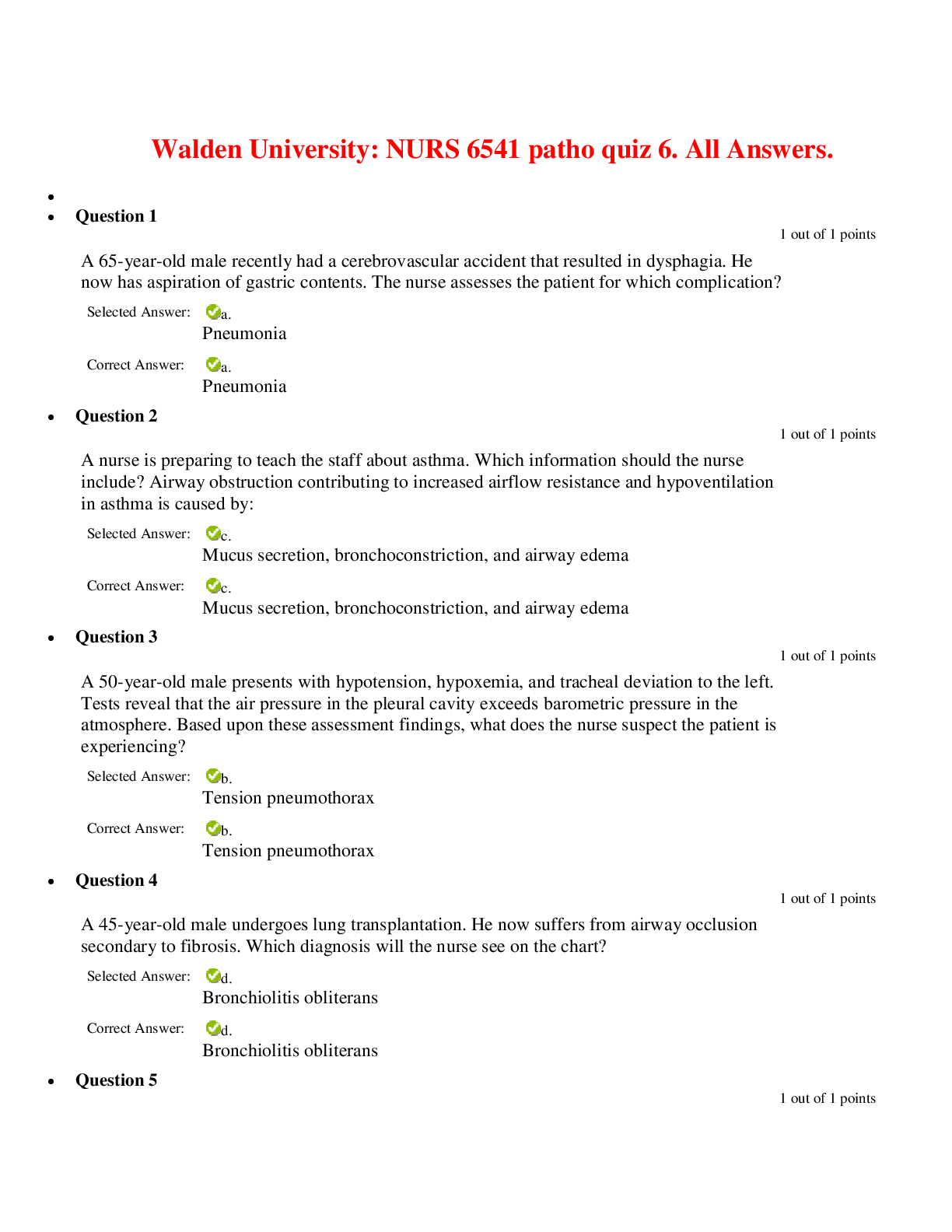
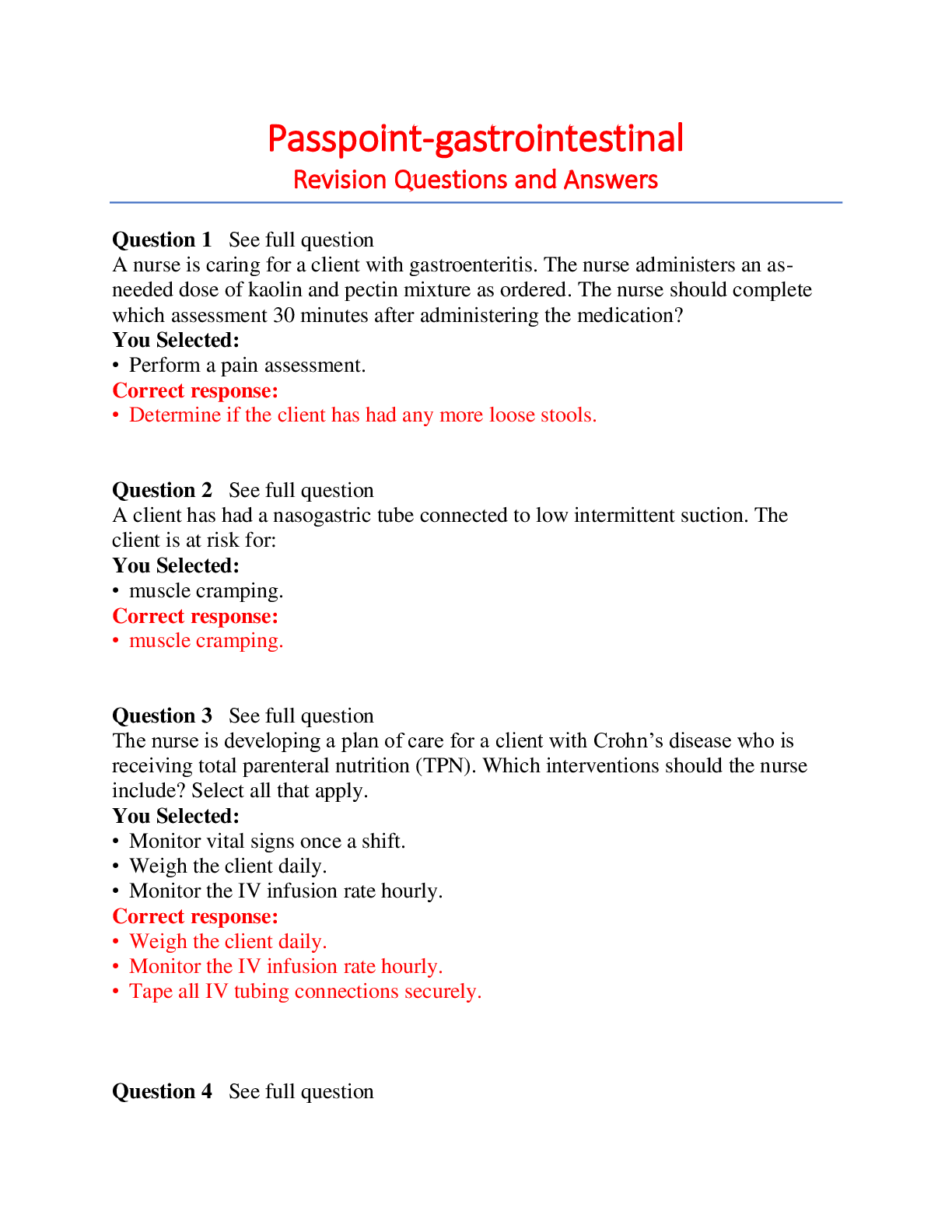
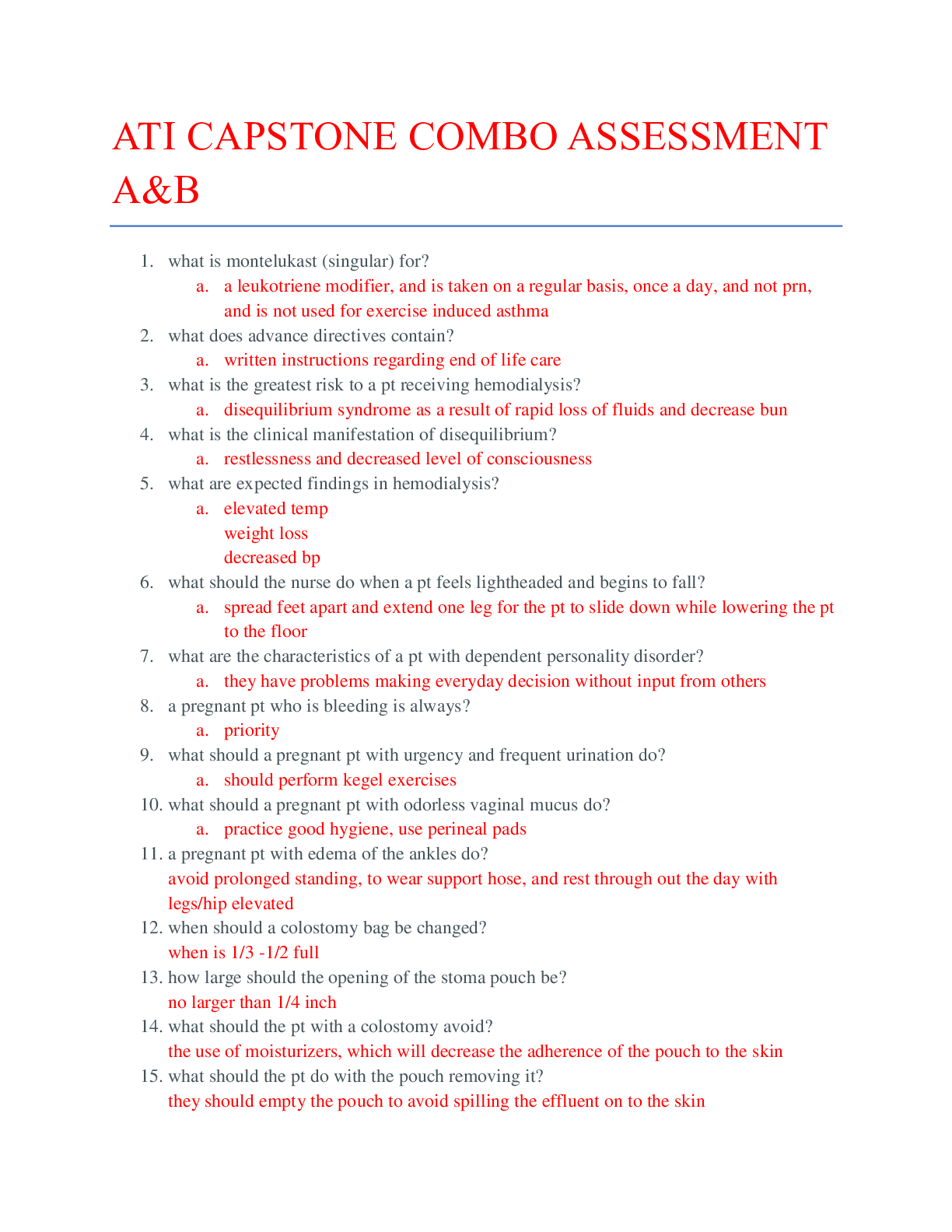
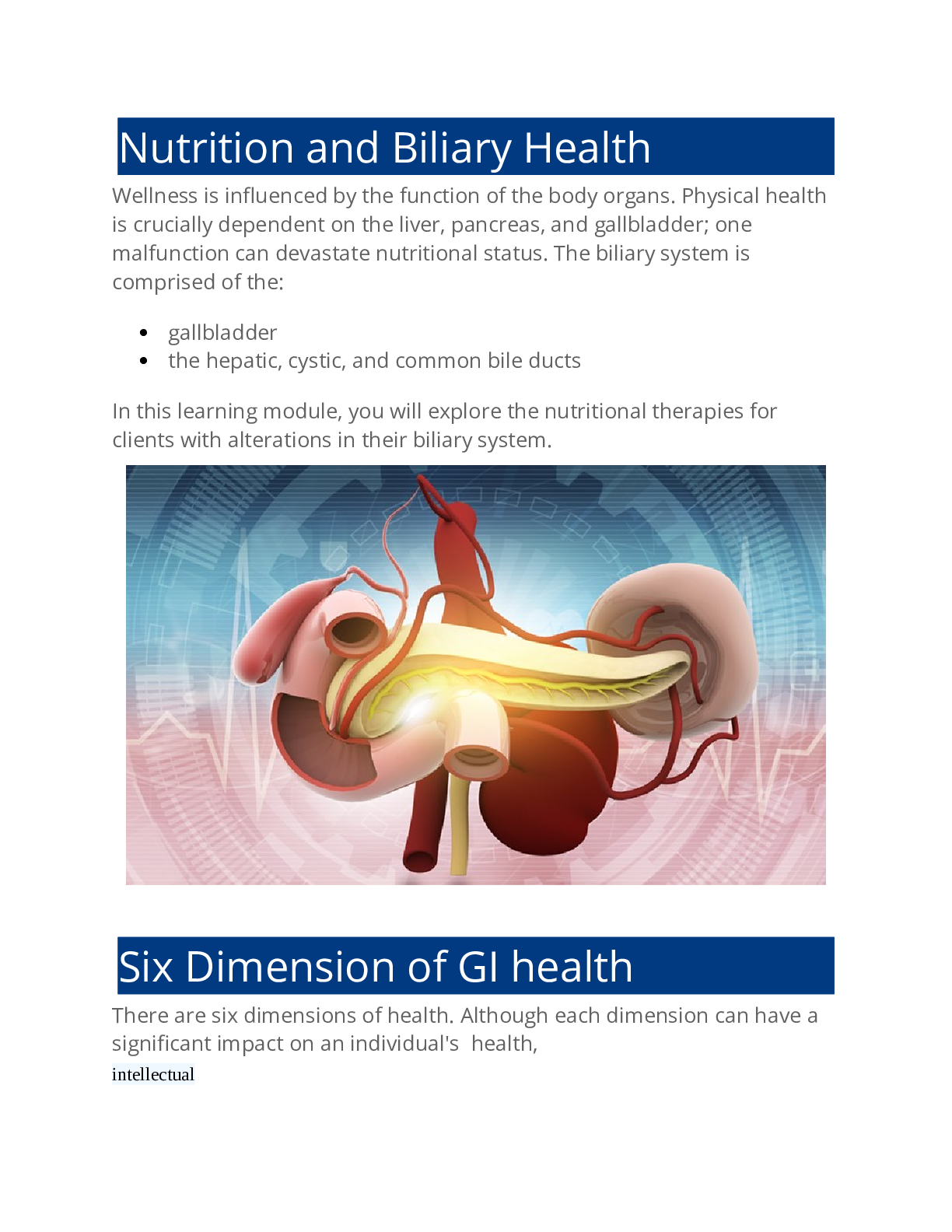
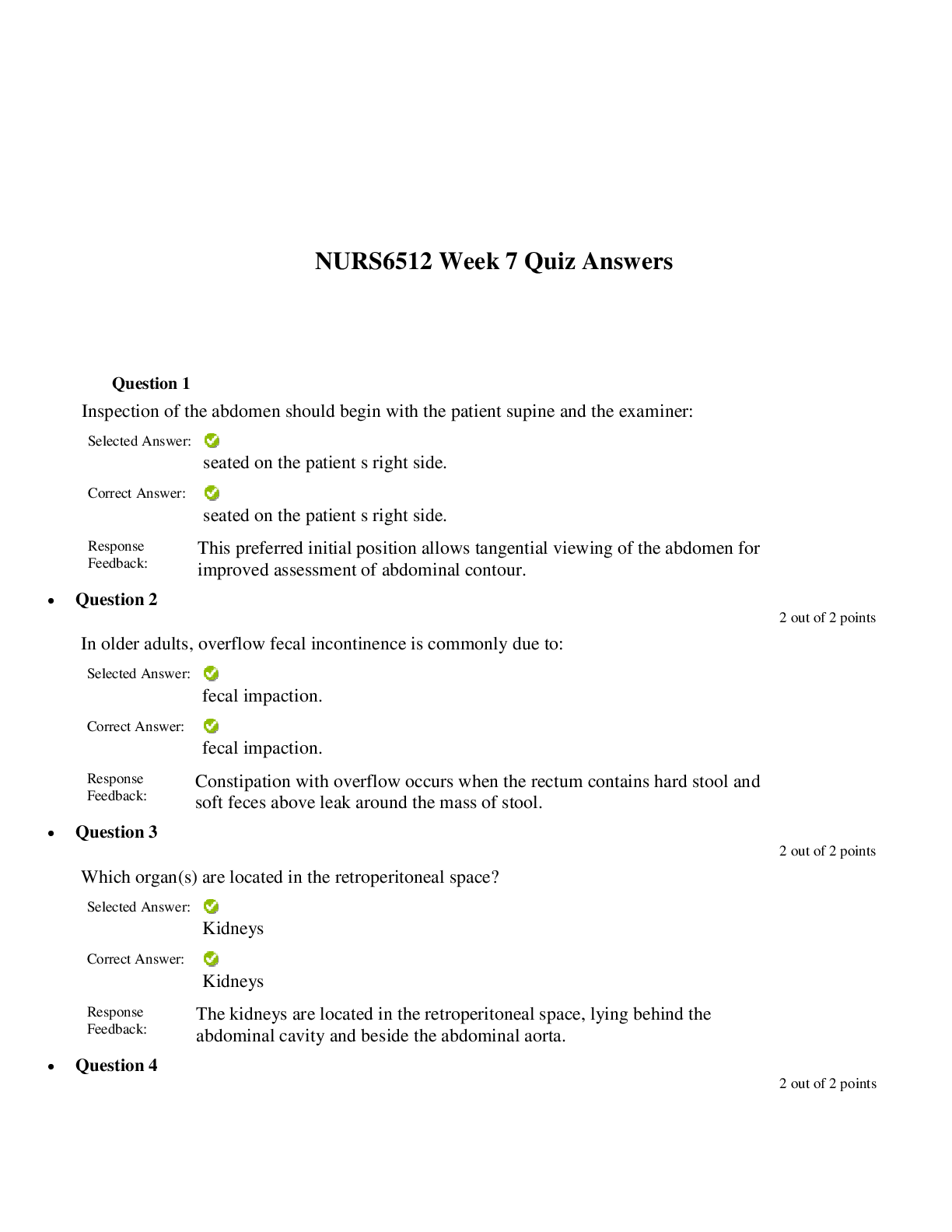
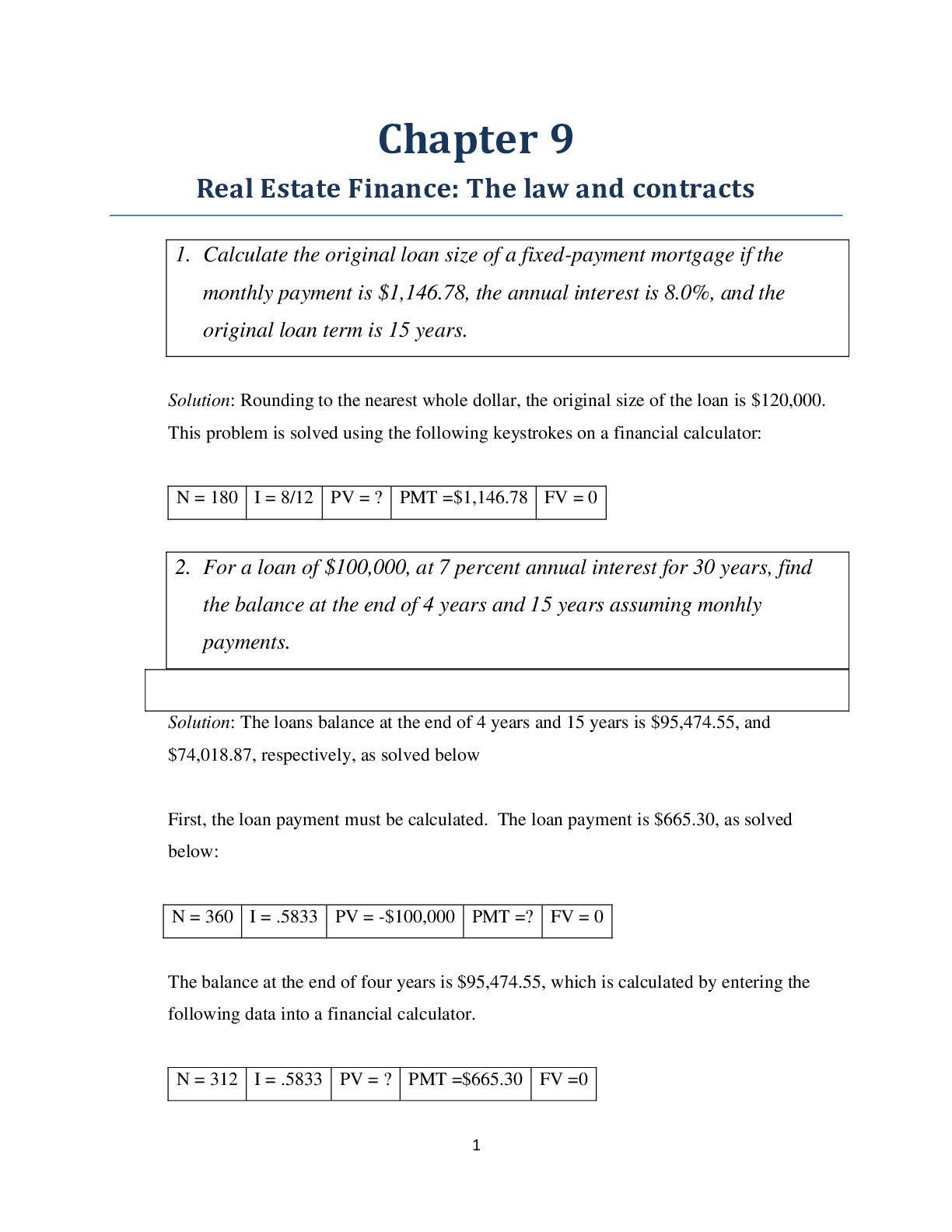
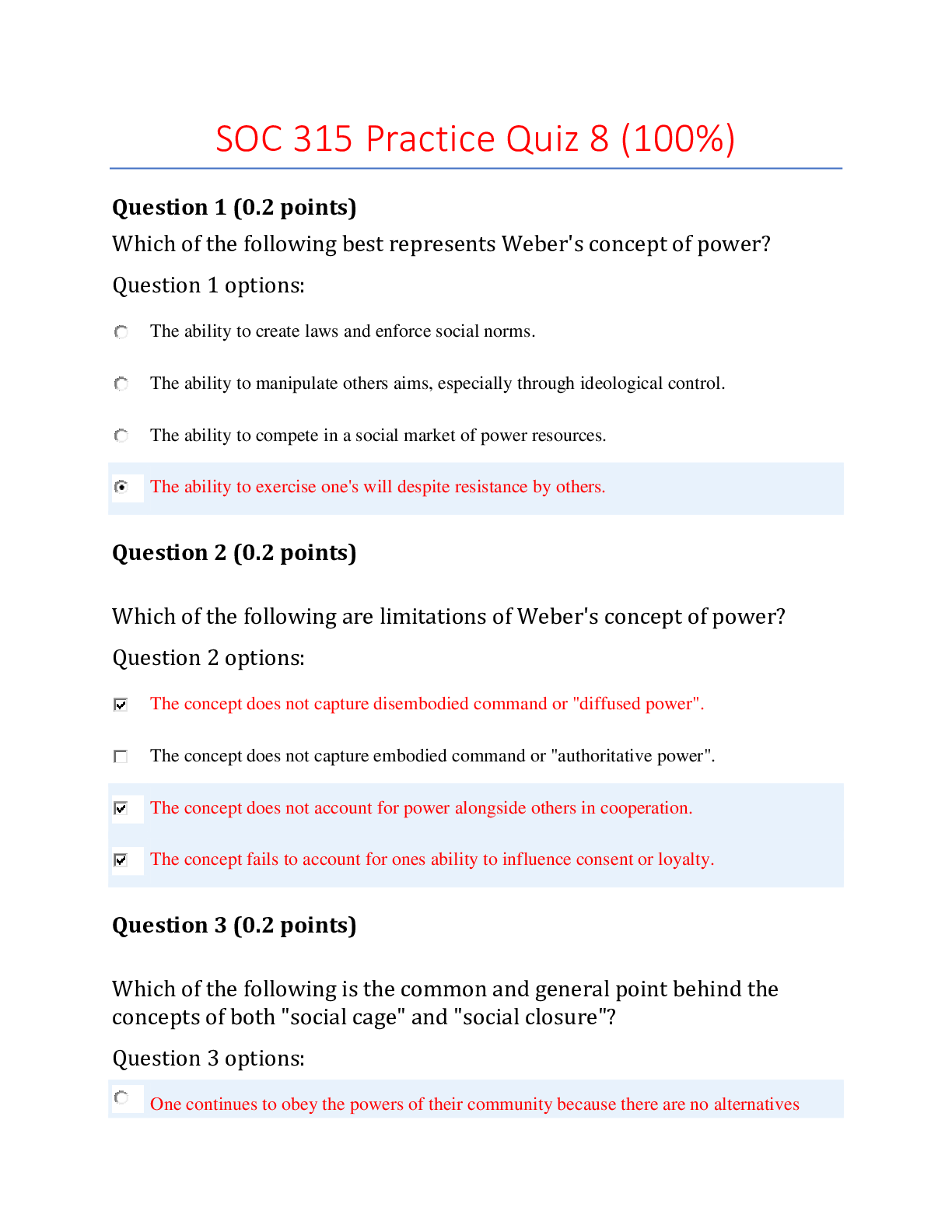

.png)
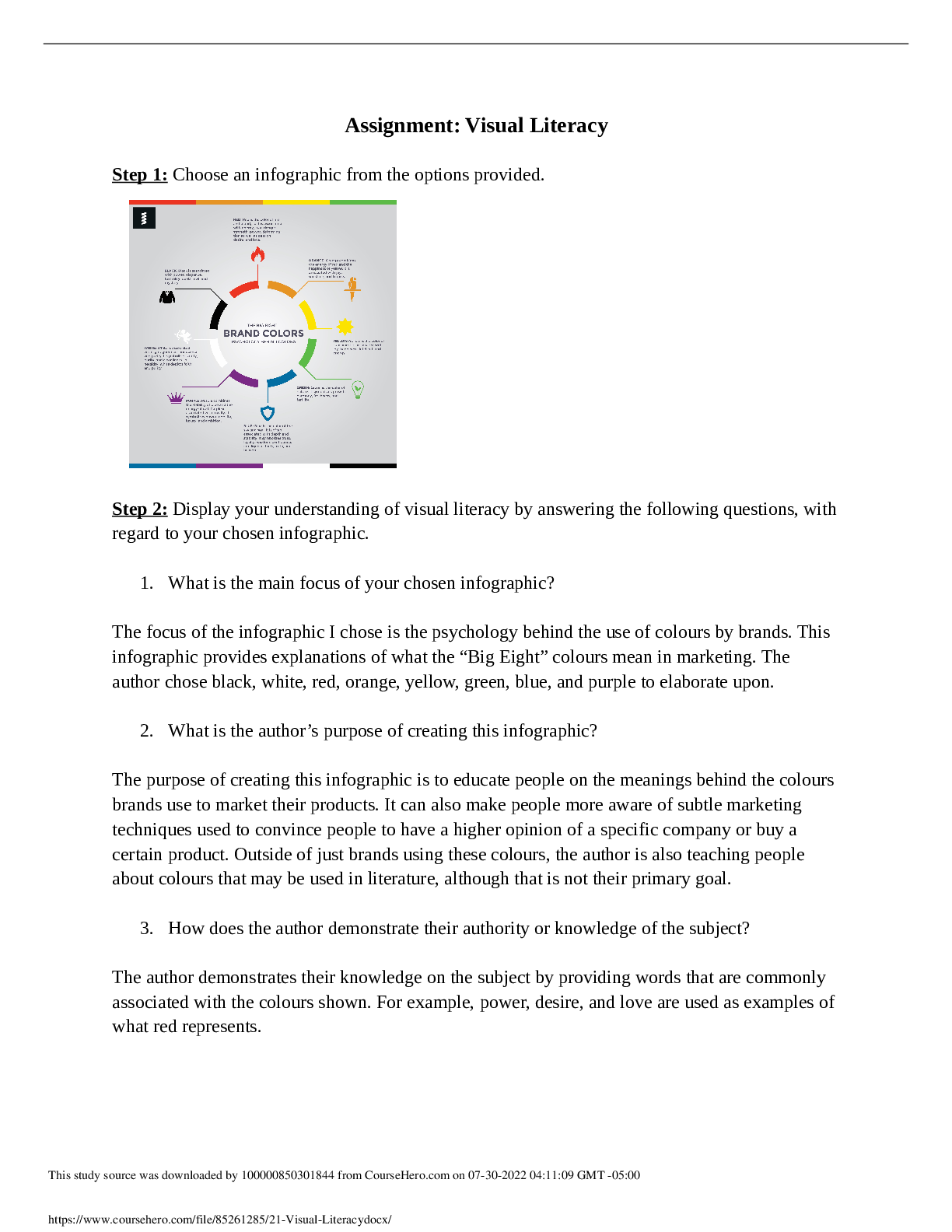

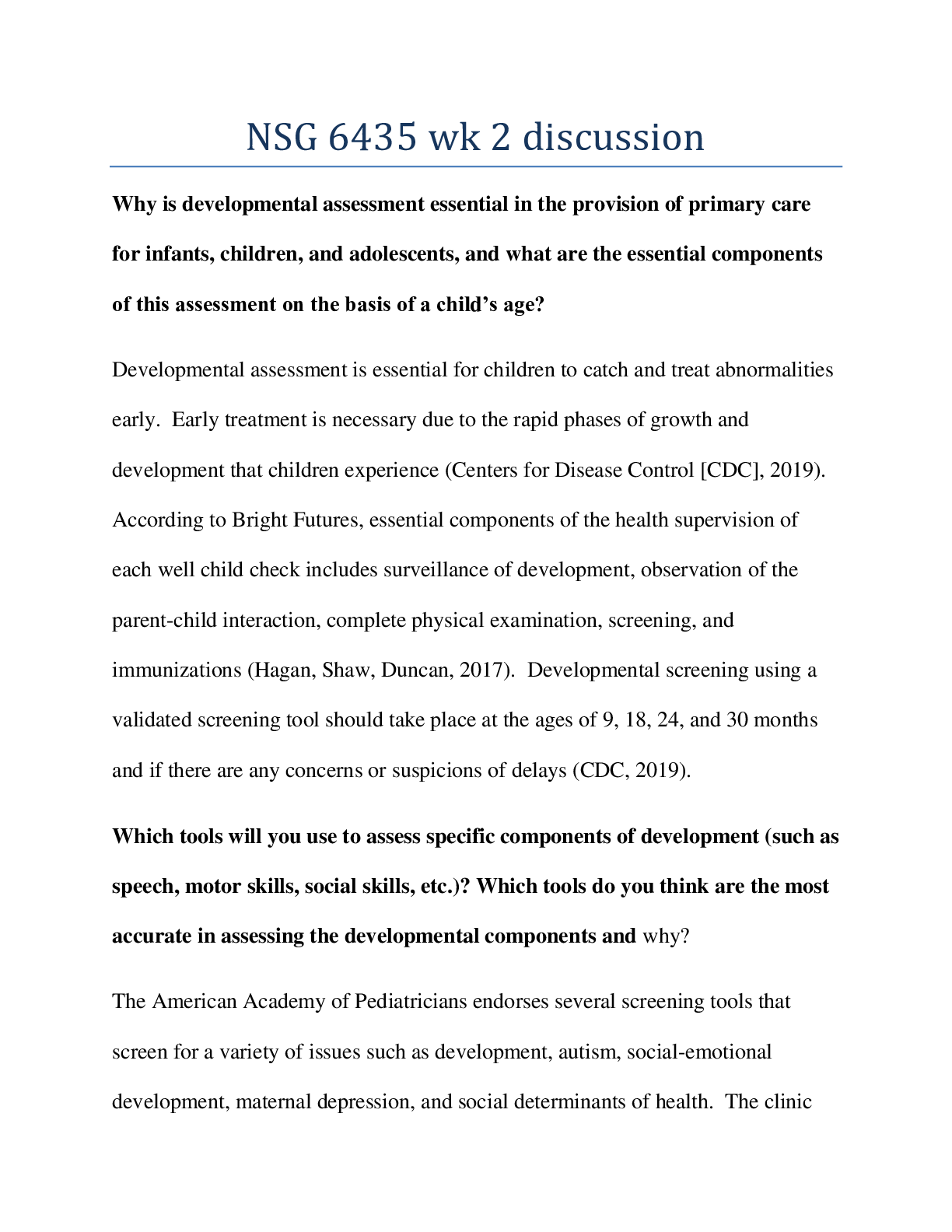
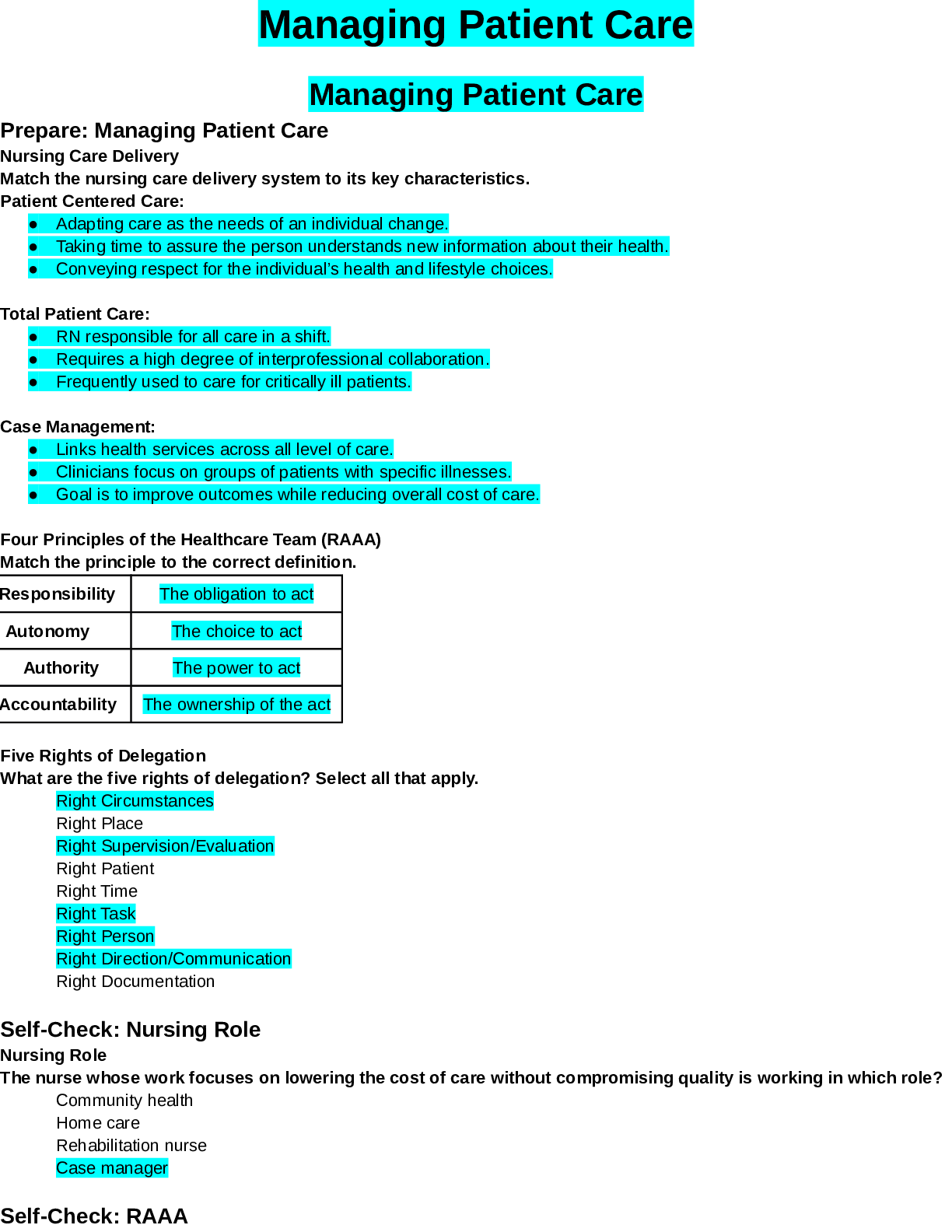
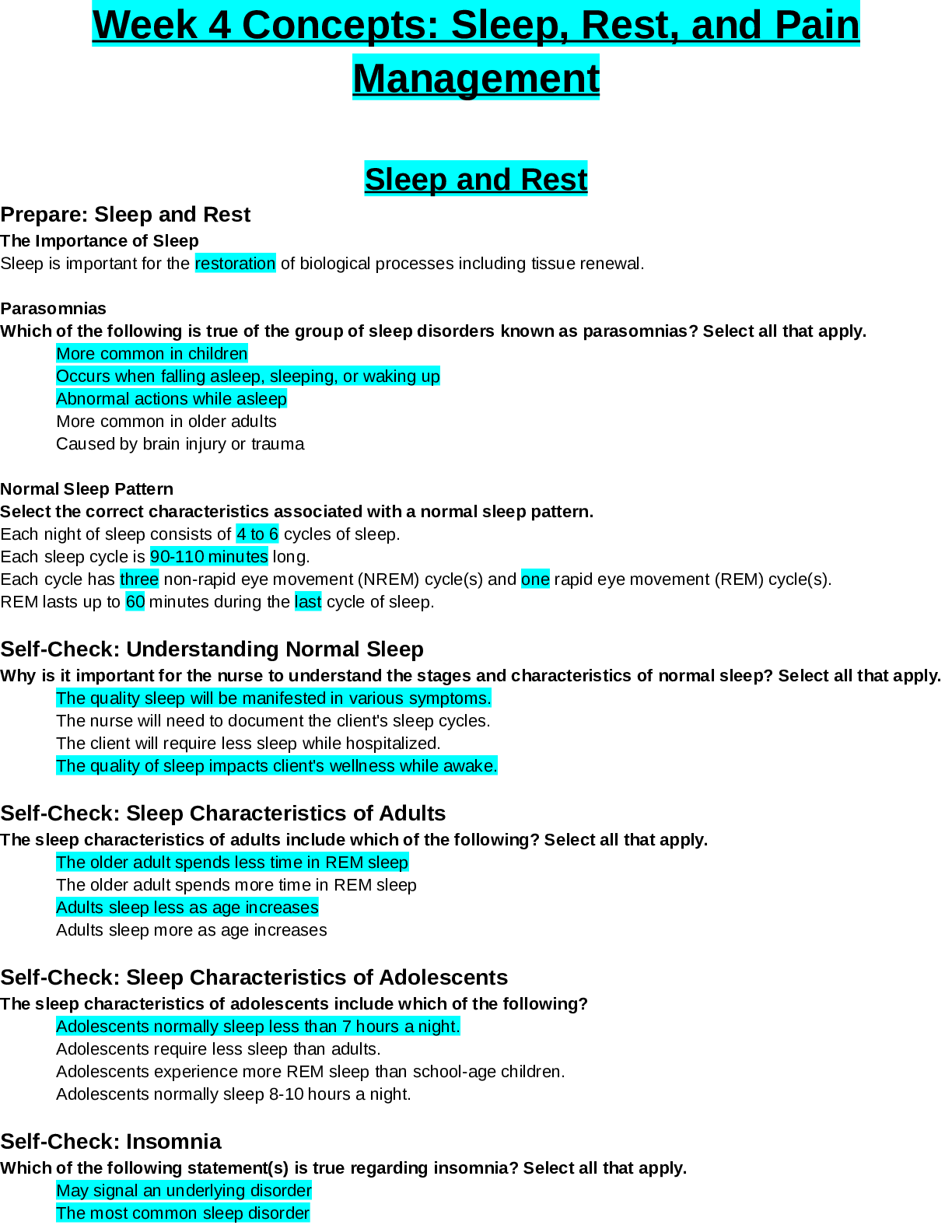
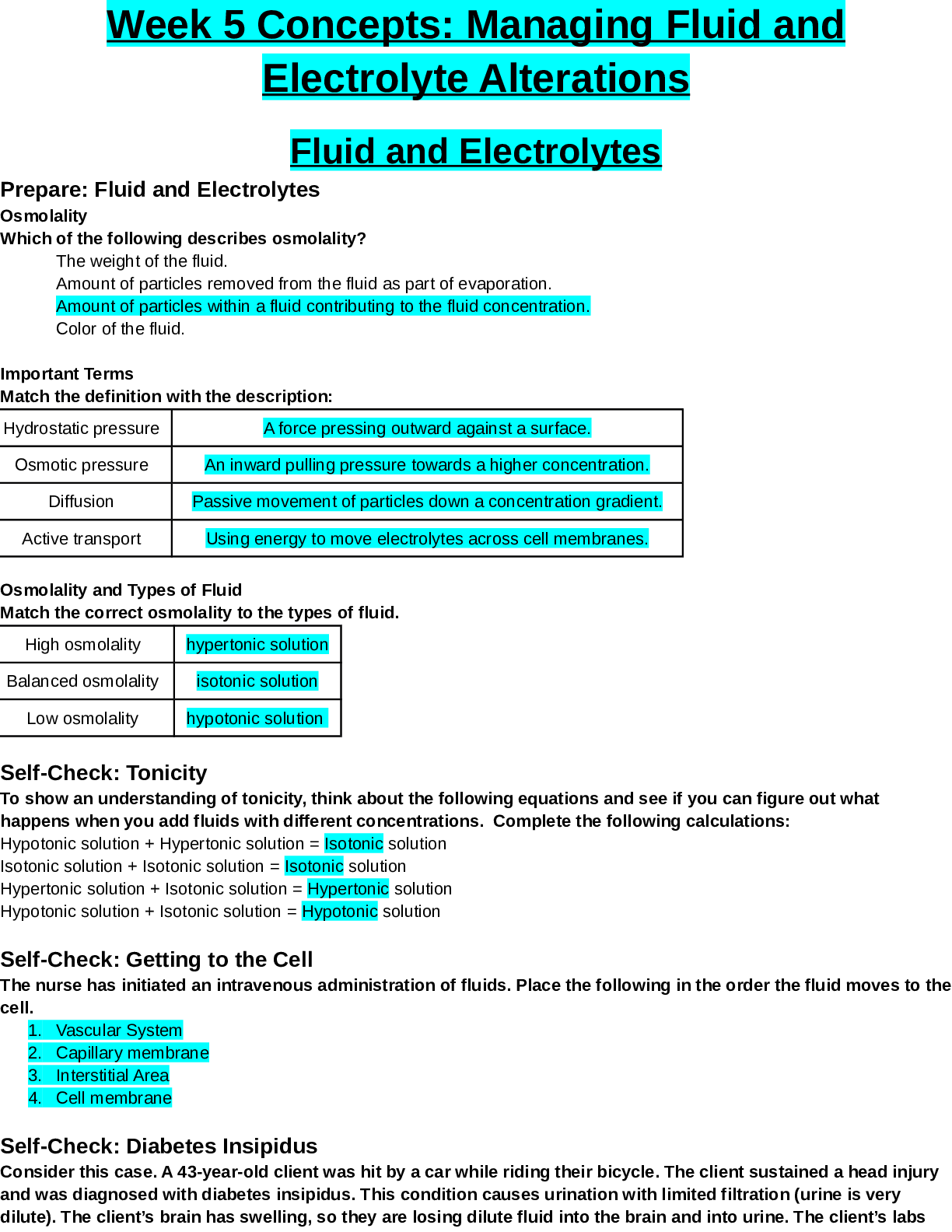

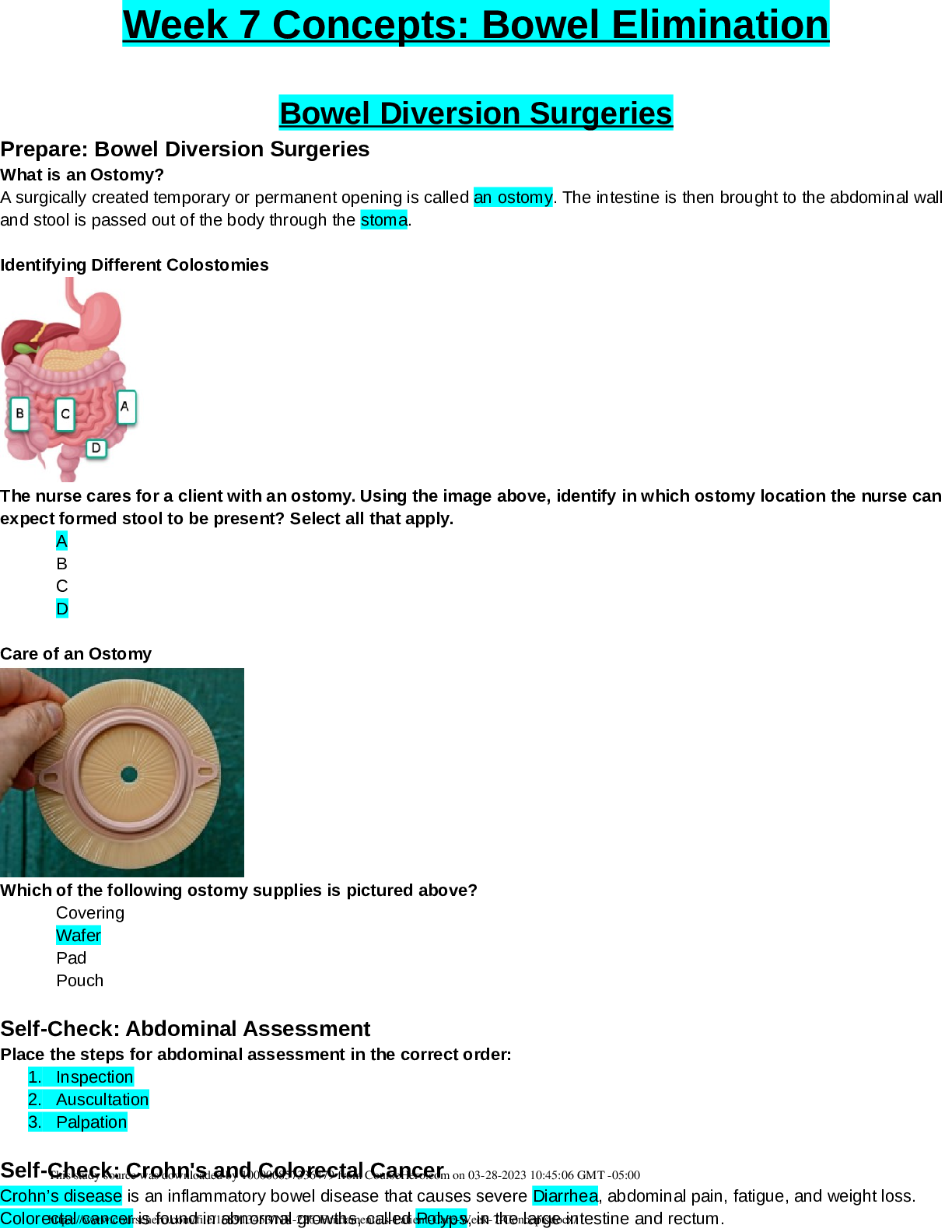
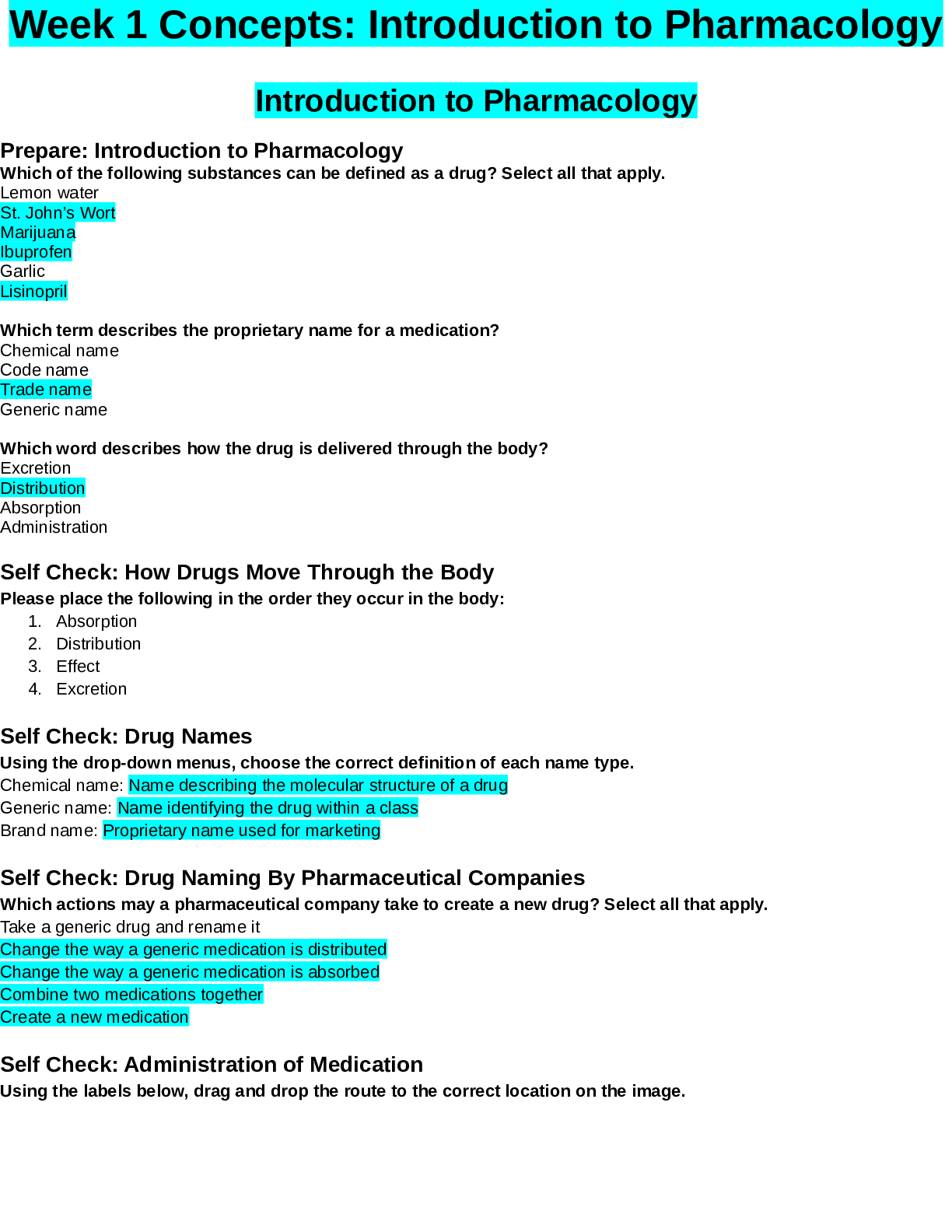
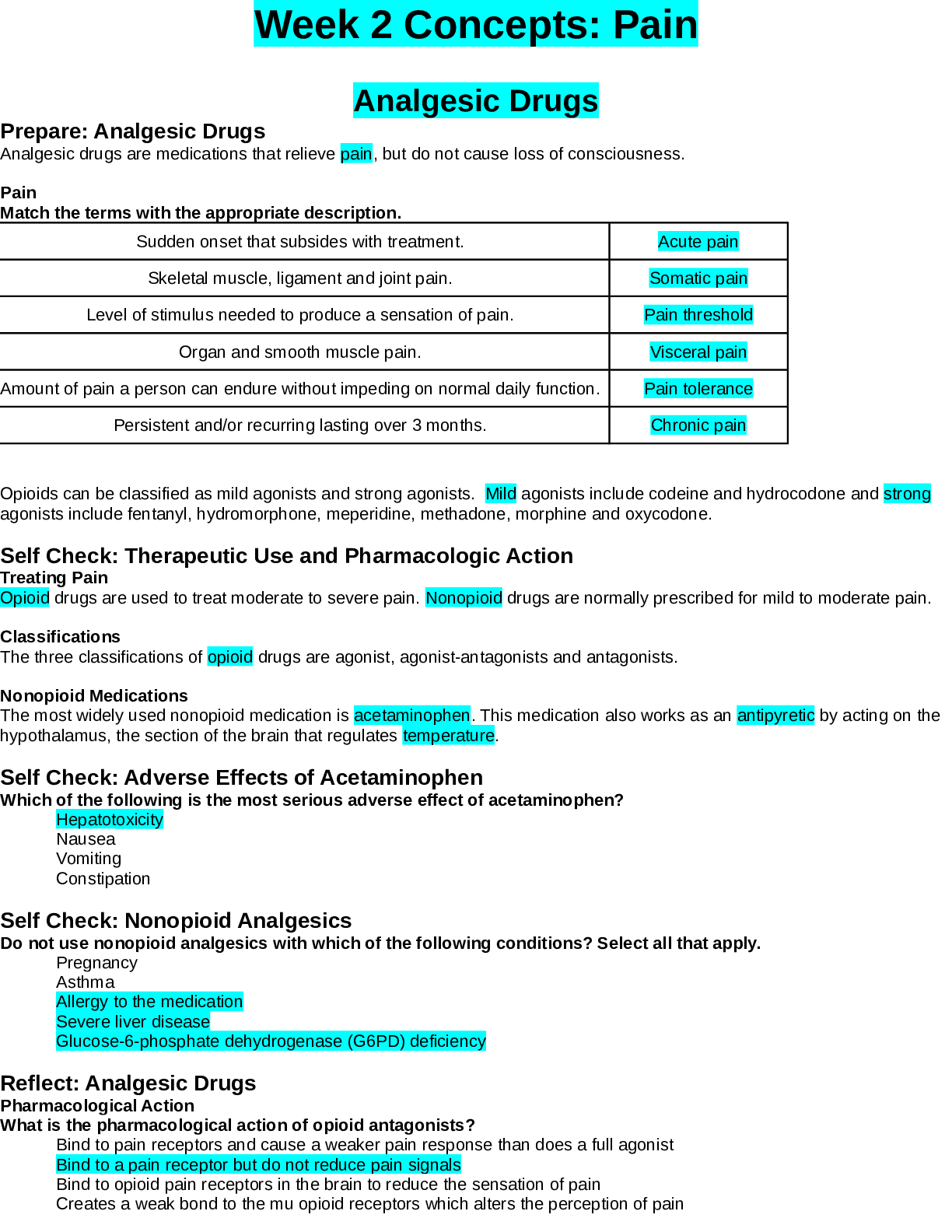
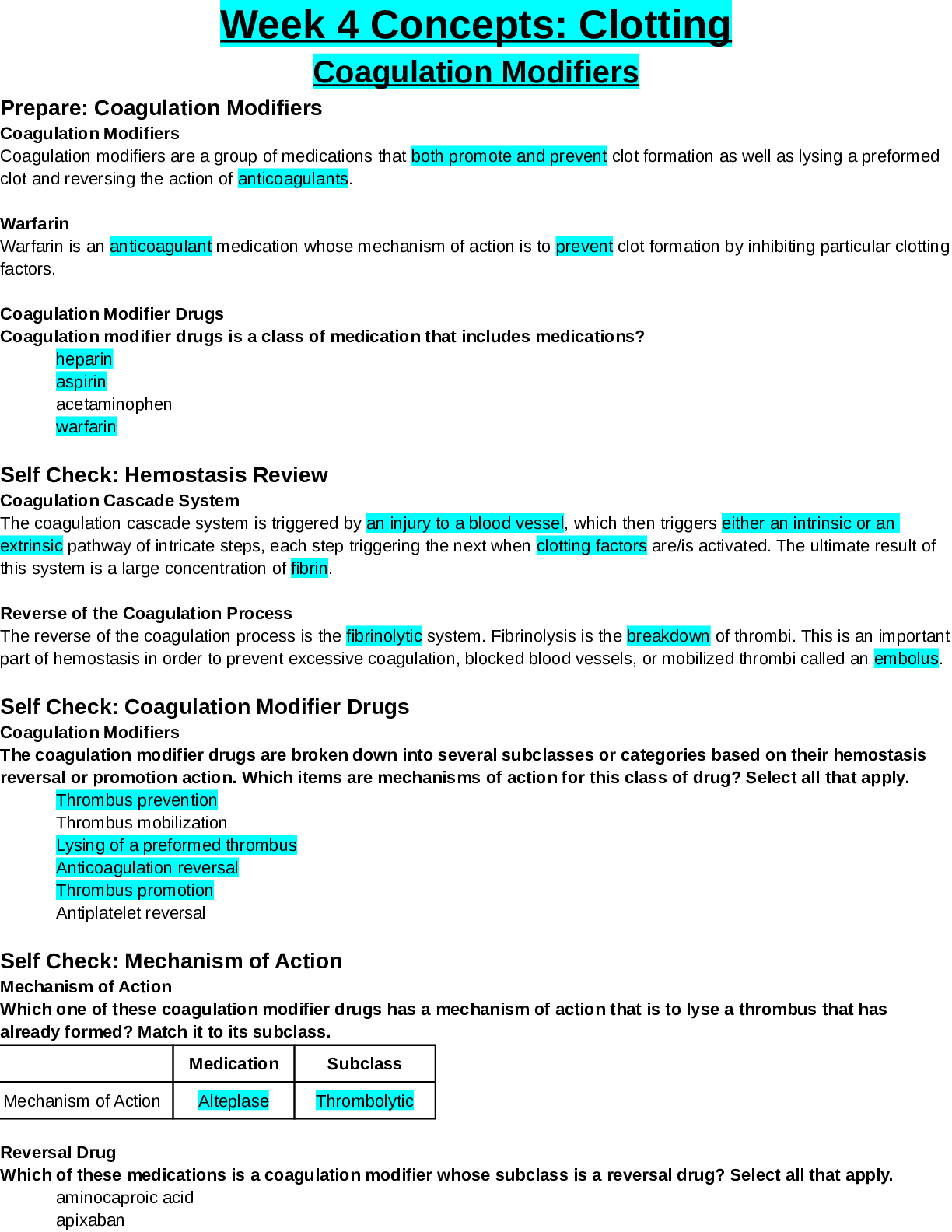
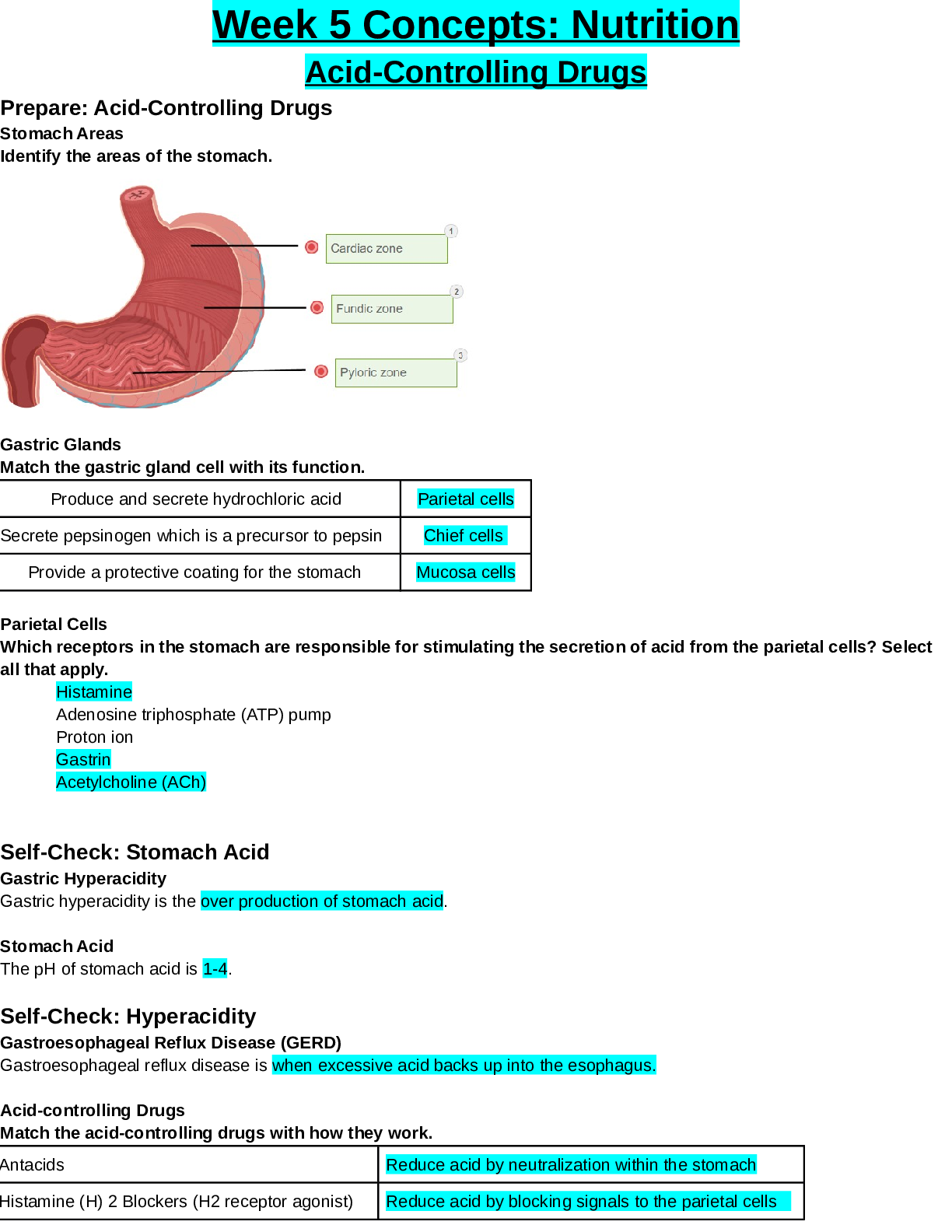
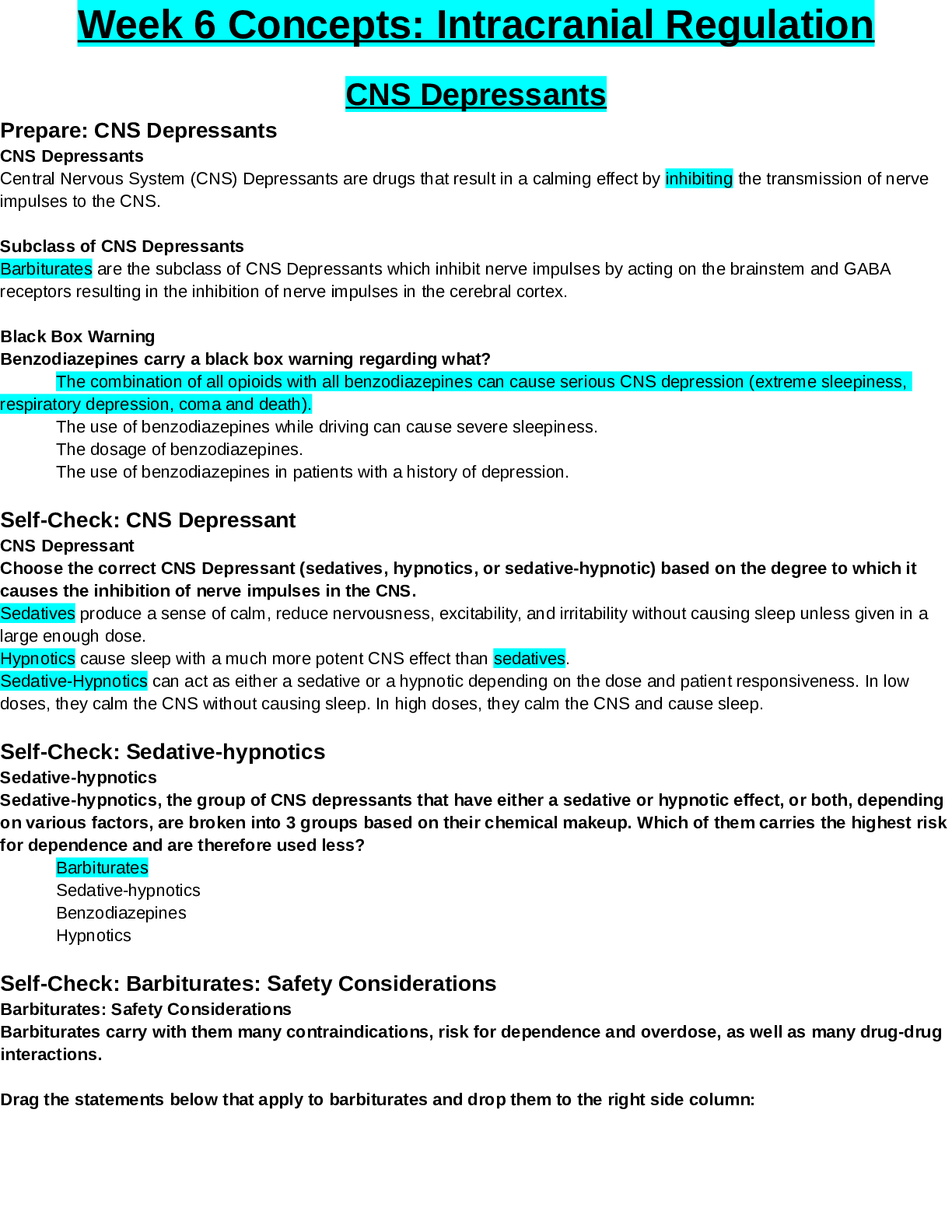


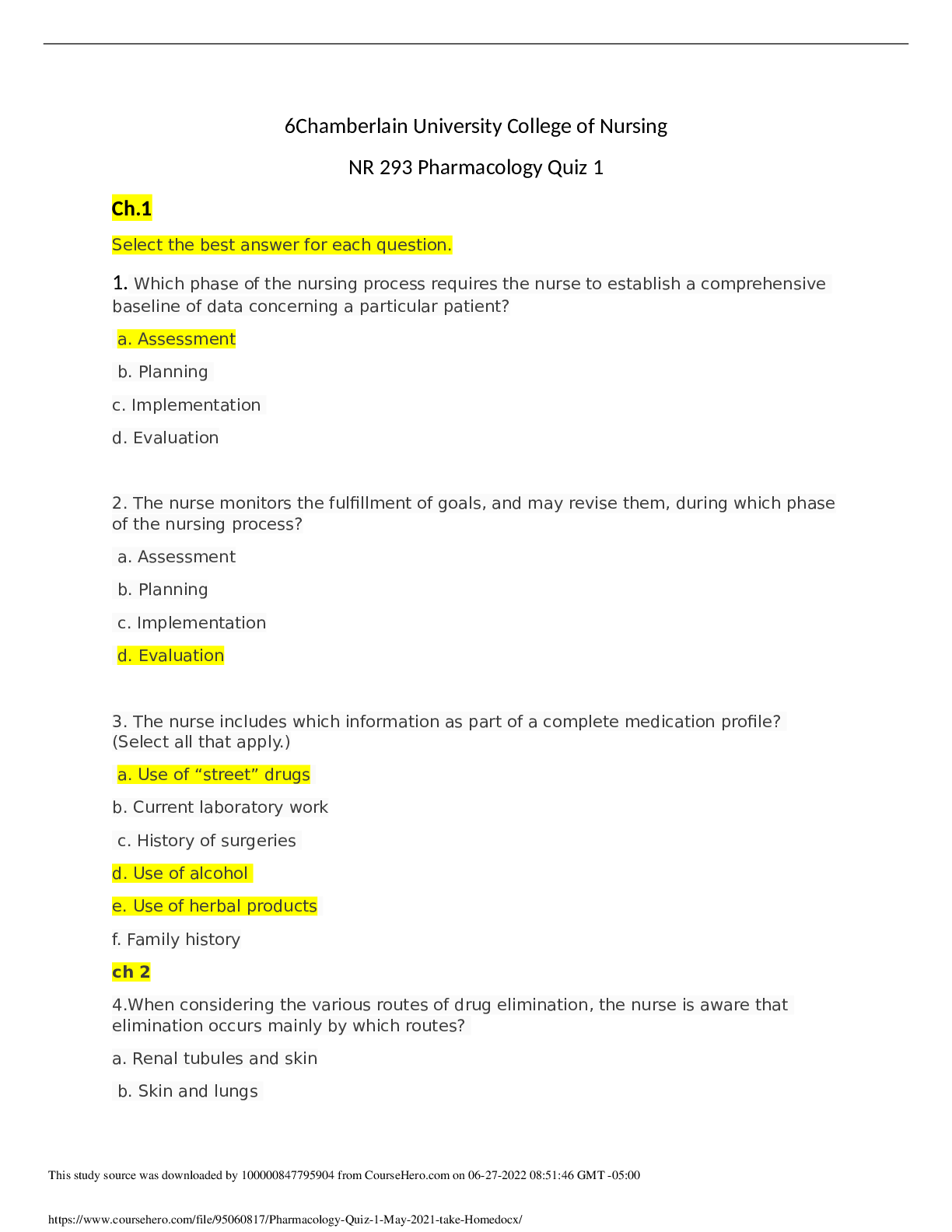
 Med Surg test Questions and Answers with Explanations, 100% Correct, Download to Score A.png)
